Top

SHRM23 Conference in Las Vegas Talking Taboo
HR
DBA,
Highlights of
Chapter 8 Age and Physical and Mental Health March 2024
Conference Cruise Ashley Dugger,
SHRM-CP Associate Dean and Director – HR and Organizational Psychology Programs College of Business Western Governors University
HR
www.HRProfessionalsMagazine.com TM Volume 13 : Issue 7
Educational Programs for
Professionals
you can


trust.
Data Facts o ers a full suite of background screening products, utilizing intuitive technology paired with our licensed private investigators and FCRA certified sta for a hybrid approach. With us, you’re connected to an easily accessible, trusted partner, empowering you to make more informed hiring decisions faster than ever before. Discover the Data Facts Di erence today... Because you deserve a better experience.
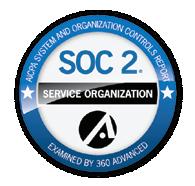

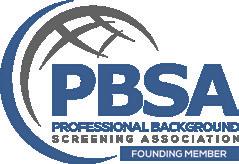


Criminal Records Search • Verifications • Driver Services • Drug Screening • Healthcare & Credentialing • I-9 & E-Verify • & More!
Transparency Scalability Thoroughness Accessibility 2 www.HRProfessionalsMagazine.com
www.
 Cynthia Y. Thompson, MBA, SHRM-SCP, SPHR
Cynthia Y. Thompson, MBA, SHRM-SCP, SPHR
Publisher
The Thompson HR Firm, LLC
Art Direction
Park Avenue Design
Marketing and Social Media Specialist
Julie Nagem

Photographer
Charles B. Thompson
Webmaster
Leo Dimilo
Contributing Writers
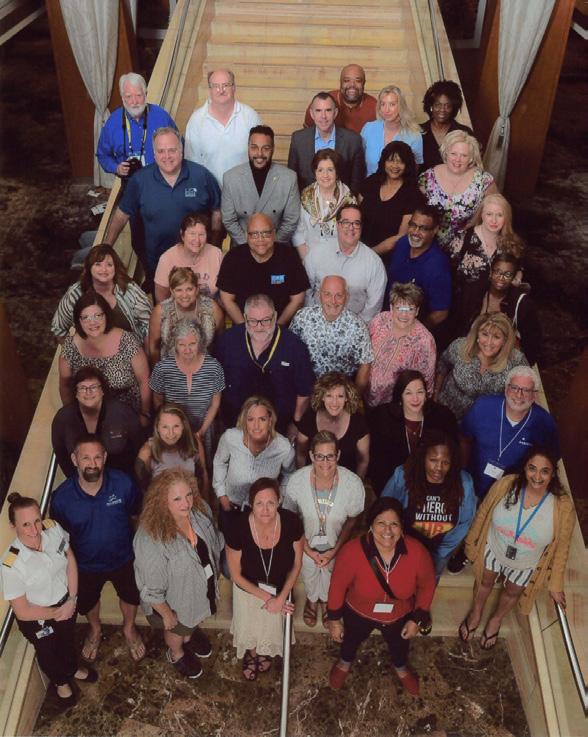
Top Educational Programs for




22
33
Contact HR Professionals Magazine:

To submit a letter to the editor, suggest an idea for an article, notify us of a special event, promotion, announcement, new product or service, or obtain information on becoming a contributor, visit our website at www.hrprofessionalsmagazine.com. We do not accept unsolicited manuscripts or articles. All manuscripts and photos must be submitted by email to Cynthia@hrprosmagazine.com. Editorial content does not necessarily reflect the opinions of the publisher, nor can the publisher be held responsible for errors.
HR Professionals Magazine is published every month, 12 times a year by the Thompson HR Firm, LLC. Reproduction of any photographs, articles, artwork or copy prepared by the magazine or the contributors is strictly prohibited without prior written permission of the Publisher. All information is deemed to be reliable, but not guaranteed to be accurate, and subject to change without notice. HR Professionals Magazine, its contributors or advertisers within are not responsible for misinformation, misprints, omissions or typographical errors.
©2023 The Thompson HR Firm, LLC | This publication is pledged to the spirit and letter of Equal Opportunity Law. The following is general educational information only. It is not legal advice. You need to consult with legal counsel regarding all employment law matters. This information is subject to change without notice.
August
Alexander Alonso William Brown Denise Cabrera Matthew Courtner William Dent Harvey Deutschendorf Amy Schabacker Dufrane Ashley Dugger Howard Jackson Gary Joyner Tim Keck Sonya Weathers , DBA, SHRM-CP, Associate Dean and Director HR and Organizational Psychology Programs at Western Governors University 10 Talking Taboo Chapter 8 Age and Physical and Mental Health 20 Register Today for the 2024 HR Conference Cruise 41 Volunteer SHRM June Meeting in Dyersburg, TN 43 2022 SHRM Southeast Excel Awards Winners Talent Management and Recruiting 9 Overcoming HR Stereotypes 14 Run-Hide-Fight for Your Life. But Does it Work? 26 Why Your Organization Should Re-Think Social Media Monitoring 28 Innovation, Collaboration and HR 34 The Impact of Vending Machines on Workplace Culture 35 10 Free $500 Visa Gift Cards from Advantage Refreshments 39 Jobless Claims Level Off in June 2023 45 How Emotional Intelligence Can Help Prevent a Toxic Workforce Employee Benefits 12 Our Health Insurance Model is Unsustainable. Here’s why. 13 The Benefits Group – We do all the work! 24 Healthcare Must be Focused on the Patient Journey 25 Transform Your Employee Benefits from an Expense to a Competitive Advantage 27 Benefits Claims Intelligence – Free White Papers! Employment Law 16 The Law Makes for Strange Bedfellows –The NLRB and Noncompete Agreements 17 29th Annual Workers Compensation Update by Wimberly Lawson August 15 in Nashville 30 Is This the Beginning of the End? New Efforts to Limit Non-Compete Agreeents 31 Rainey Kizer Reviere & Bell, PLC –The Strength of Experience
8 Accelerate Y Development Matters 15 Become a Certified Threat Analyst and Keep Your People Safe 18 Emory Law Legal Training for HR Professionals 19 Join SHRM and Access $13,000 Worth of HR Tools 23 University of Illinois School of Labor & Employment Relations 27 Speakers Training Camp 29 Save 20% on HRCI Courses in 2023 with Code HRMAG23 31 Columbia Southern University Online 32 Online HRCI | PHR | SPHR Certification Prep Class Begins August 15 39 Columbia Southern University Online 41 FIU Center for Leadership 44 SHRM In-Person and Online Education Programs 47 WGU’s Sneak Peek of New Master of Science in Human Resource Management Launching November 1 48 WGU – Invest in Your Most Important Asset: PEOPLE SHRM Conferences Update 6 Highlights from SHRM23 75th Anniversary Conference in Las Vegas June 11-14
45th Annual HR Florida Conference in Orlando August 27-30
39th Annual KYSHRM Conference in
August
Lexington
29-31
SHRM
Conference in
September
TNSHRM Conference
September
36 Highlights from Disrupt HR – Matinee Style in Memphis 38 Texas
Global
Houston
14 40
in Chattanooga
20-22
October
42 One SHRM Georgia Conference in Lanier Islands
11-13
46 SHRM Inclusion Conference in Savannah, GA October 30 – November 1
2023
the Southeast.
to
July
3-8 MARCH2024 DEPARTFROMMIAMI Miami•Labadee,Haiti• Falmouth,Jamaica•Miami REGISTERWITHJUSTA $100DEPOSIT! WE'LLINVOICEFORTHE BALANCE EXPLOREROFTHESEAS CONFERENCECENTER NETWORKING Submittingfor16.25recertcredits JOINUSFOR "THISISANEWDAY" hrcruise.com RoyalCaribbean 3 www.HRProfessionalsMagazine.com
Issue Features SHRM Fall Conferences in
Deadline
reserve space
15
SHRM’s 75th-anniversary signature Annual Conference & Expo (SHRM23) opened on the Main Stage with an exclusive conversation between 42nd president of the United States, Bill Clinton, moderated by SHRM chair Betty Thompson, Chief People Officer with Booz Allen Hamilton. He offered his perceptions on the world of work today, from the state of the economy to immigration reform.
Former President Clinton told the packed room that there are ways to make paid leave work, saying “there are all kinds of ways to accommodate small business. It would help the economy and would be pro-work and pro-family. We have got to have policies that are not either or. “You have got to be pro-work and pro-family, you’ve got to be fair to the workers and fair to the owners, you’ve got to be pro-growth and pro-environment.”
On skilled credentials, labor shortage and college degrees, Clinton said, “We shouldn’t require a college degree if the job doesn’t require it. I like it when a lot of people get a degree and go away to college and there are benefits to getting an education, but I don’t think we should make our economy less efficient by lowering workforce participation at a time when there are 10 million open jobs.”

The SHRM23 Conference in Las Vegas was an amazing event with a recordbreaking attendance of over 25,000 from all over the world! There were also more than 380 speakers. Needless to say, it was the best SHRM conference ever! Congratulations to SHRM on 75 years of service to HR professionals!
We are honored to feature Dr. Ashley Dugger. DBA, SHRM-CP, Associate Dean and Director of HR and Organizational Psychology. Ashley holds an earned Doctor of Business Administration degree with a focus in Management, MBA in International Business, BS in Business with a focus in Marketing, and the SHRM-CP certification. In November of 2023, she and her team will also launch a new MS in HR Management degree. You may enroll August 1, 2023. Be sure to read her professional career profile on Page 5.

Our July issue is very special because we feature some of the top educational programs for HR professionals in the Southeast. If you would like to finish your degree or perhaps obtain a graduate degree, you will find many excellent offerings in this issue. We are showcasing many Southeastern colleges and universities with an array of online degree programs that are bound
to meet your needs. Check out these excellent programs and find the one that suits your needs. See Page 19 to learn about the SHRM HR tools available for SHRM members and the in-person and virtual education programs available from SHRM on Page 43.
If you are not currently certified as an HR professional, I invite you to attend our upcoming Online HRCI | PHR | SPHR Certification Exam Prep Class beginning August 15. We will meet on Monday and Wednesday evenings from 6 PM CT to 7 PM CT. According to recent statistics, certified HR professionals earn up to 20% more than non-certified HR professionals! Our class is guaranteed so that if you do not pass your exam the first time, you may take the next class at no charge. I will stay with you until you pass! Our class has a 90% pass rate. You can register on our website at www.hrprofessionalsmagazine. com. The deadline to register is August 8. See details on Page 32.
Watch your email for your invitation to our July complimentary webinar sponsored by Data Facts on July 25. This webinar is pre-approved for one HRCI business credit and one SHRM PDC. If you are not currently receiving our monthly email invitation, you can subscribe on our website at www.hrprofessionalsmagazine.com
cynthia@hrprosmagazine.com @cythomps

a note from the editor
SHRM Chair, Betty Thompson, welcomes former President, Bill Clinton, to the main Stage at SHRM23.
4 www.HRProfessionalsMagazine.com
Ashley DUGGER, DBA, SHRM-CP

Associate Dean and Director – HR and Organizational Psychology Programs College of Business | Western Governors University
Dr. Ashley W. Dugger began her career in higher education leadership, helping to lead teams of admissions and enrollment specialists for one of the largest distance education programs in the country and has since focused on operational leadership and human resource management. After earning her Doctorate in Business Administration, she transitioned to working as a capacity management analyst in the financial services industry. Knowing her professional passions centered in HR and organizational culture, she also spent time managing HR functions as part of leading a large team while running the operations side of a local animal shelter, and then moved to work in higher education HR management. As a Senior HR Generalist and Title IX Coordinator, she was responsible for all facets of HR, compliance, and managing a team of HR professionals.
Ashley holds an earned Doctor of Business Administration degree with a focus in Management, MBA in International Business, BS in Business with a focus in Marketing, and the SHRM-CP certification. Through SHRM she has also earned the Veterans at Work and Getting Talent Back to Work certifications. Ashley holds a certificate in Instructional Design from Association for Talent Development. She serves in the role of Associate Dean and Director of HR and Organizational Psychology programs in the College of Business at Western Governors University, leading an academic program management and faculty management team, as well as a team of HR faculty that serve students in the undergraduate HR degree programs. In November of 2023, her team will also launch a new MS in HR Management degree. She is the primary faculty advisor for the WGU SHRM Virtual Student Chapter, which has almost 700 student members.
Her areas of expertise include strategic human resource management, higher education administration, organizational culture, change management, leadership, adult education, learning and development, and online/blended faculty effectiveness. She also has a love for humor at work and how we can utilize humor to build relationships, drive connection, and strengthen trust with our colleagues! Ashley has presented on the topic of humor at work and how HR professionals can use humor, published on this topic, and is looking forward to leading workshops on humor at work in the future. Supporting mental health and well-being of employees, and disability inclusion, is both a personal and professional passion for her, as is providing educational opportunities to traditionally underserved populations. As a first-generation college student herself, she knows firsthand the impact that access to education can have on the trajectory of your life. She is also extremely passionate about the impact HR professionals and all employees can have on organizational culture and the impact that our work experiences have, as a trickle-down impact, to our families, friends, and communities. Ashley believes in the idea that HR truly can change the world – not just the world of work, but as a force for positive change in how we value and include one another, treat each other with respect, and learn to collaborate to drive lasting, positive change in all aspects of our lives and the lives of those around us. She has brought her interest and love for community service to her work at WGU, and it also serves as a large focal point of her personal life.
Ashley has presented for organizations such as ACBSP, Online Learning Consortium, SHRM, and CUPA-HR on various HR, leadership, organizational culture, higher education, and business topics. Her work has been published and featured with HR Professionals Magazine, Talent Management, Chief Learning Officer, and Higher Ed HR Magazine. If you would like to reach out to Ashley, you can email her at Ashley.dugger@wgu.edu, and connect on Linked In!
on the cover
5 www.HRProfessionalsMagazine.com
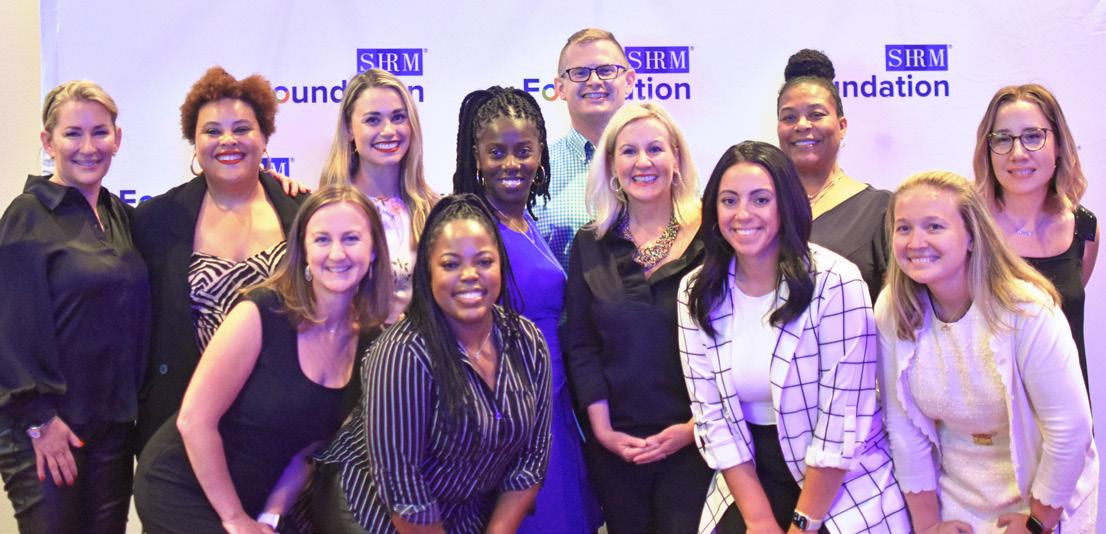
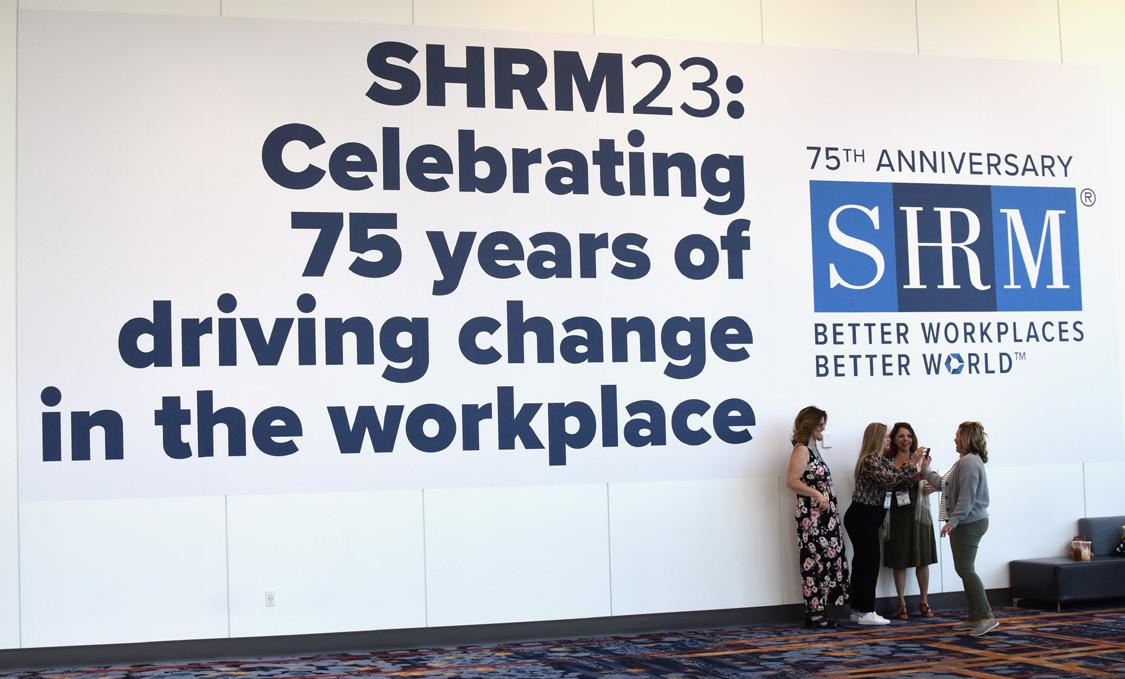


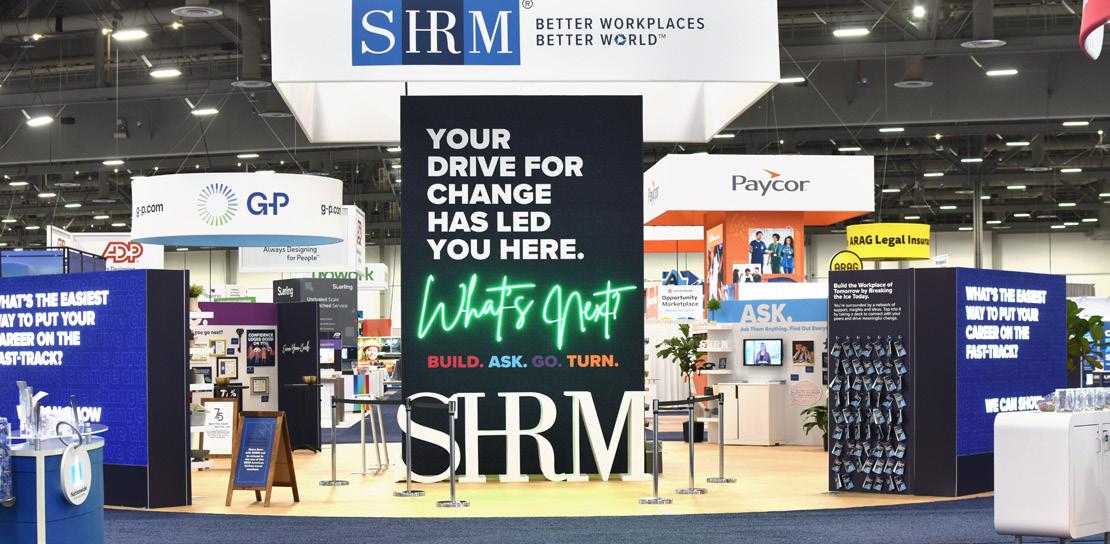



11-14, 2023 6 www.HRProfessionalsMagazine.com
SHRM ANNUAL CONFERENCE & EXPO HIGHLIGHTS JUNE
In case your missed SHRM23 in Las Vegas, check out our videos and Facebook and LinkedIn.
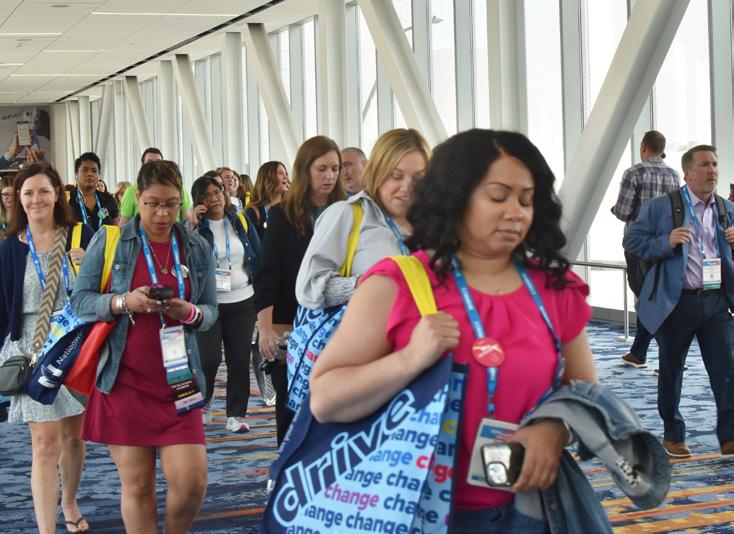

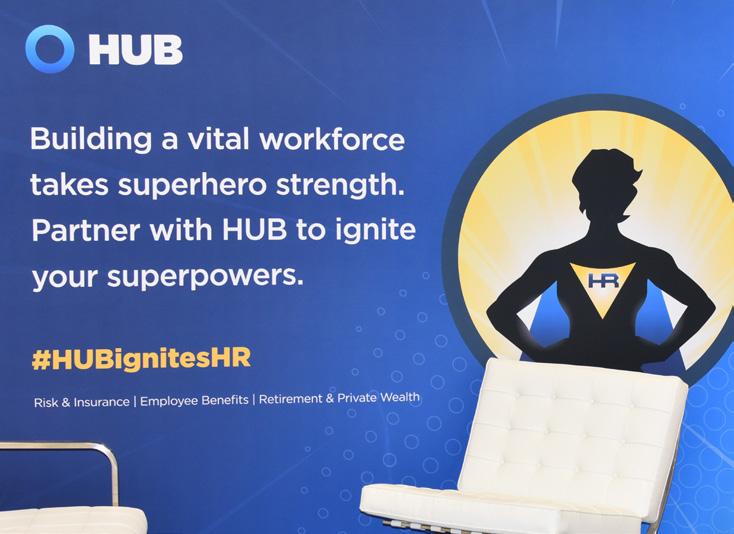

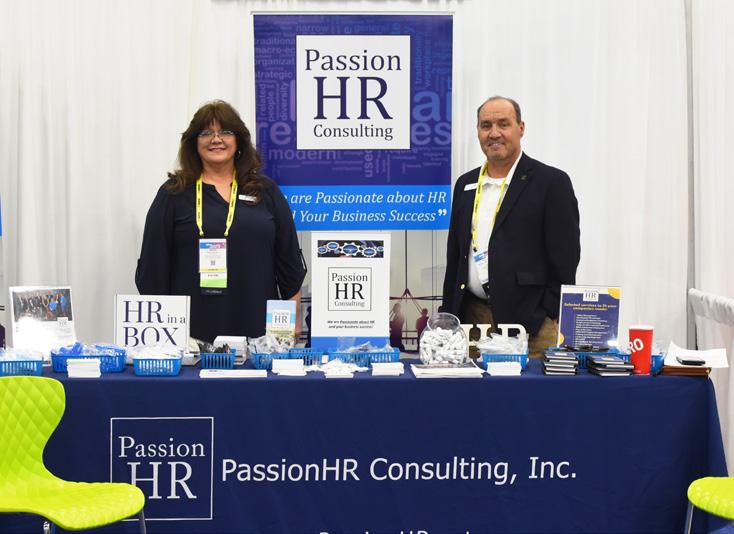
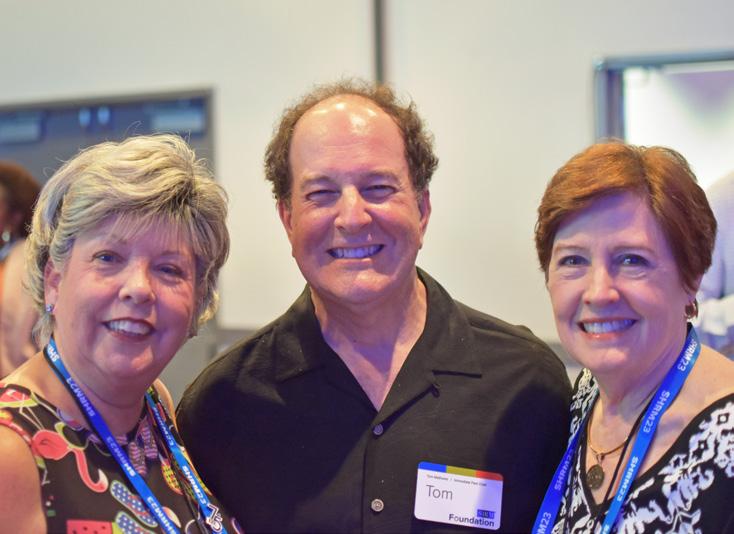
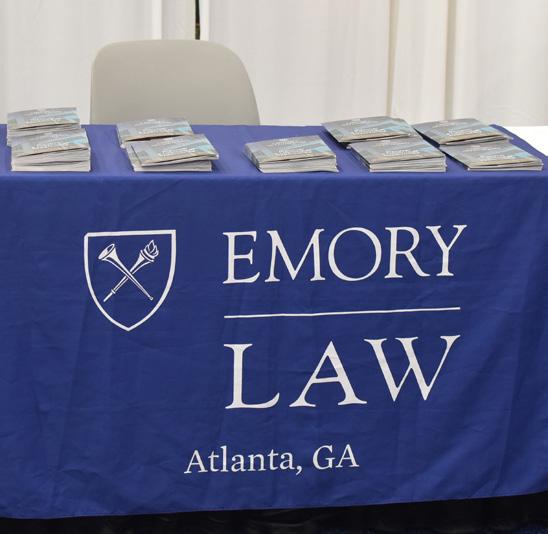
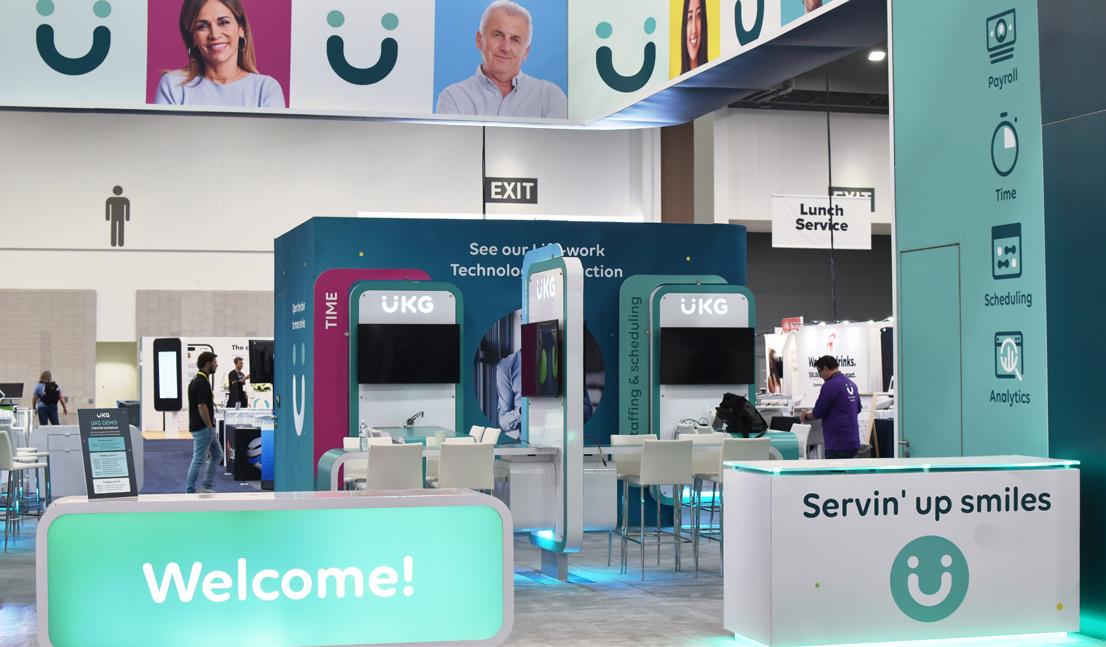

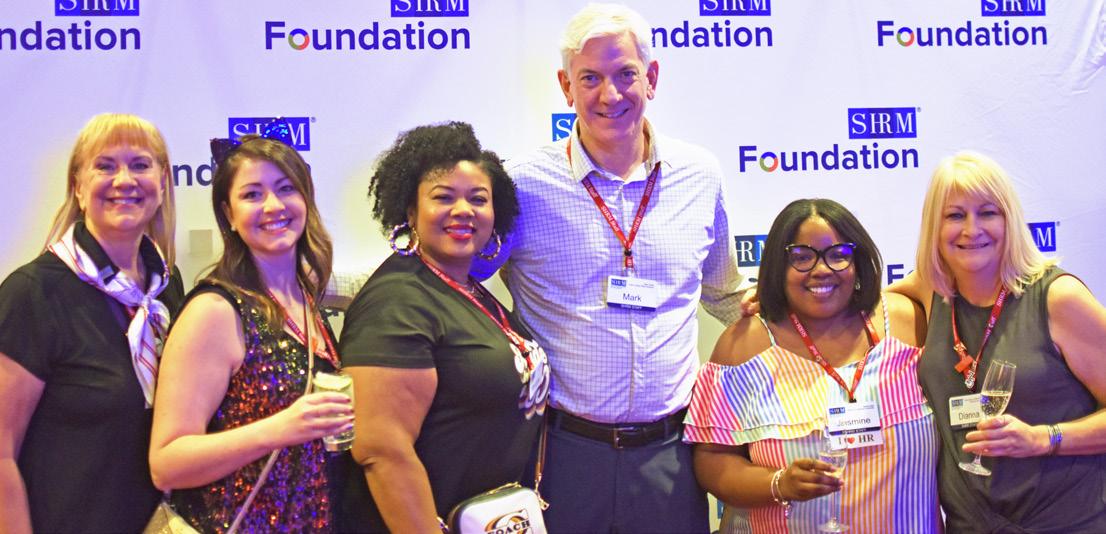
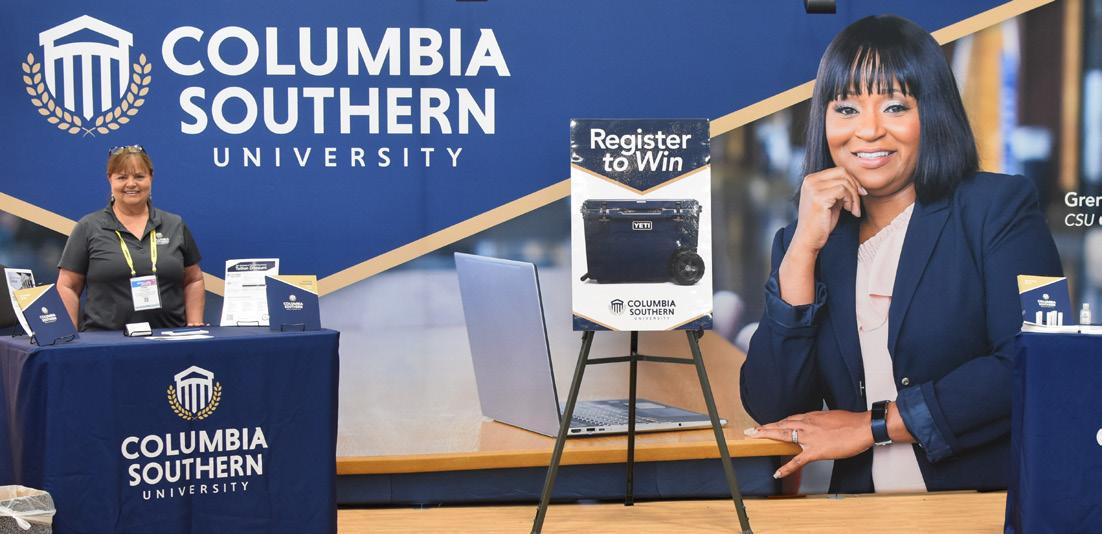


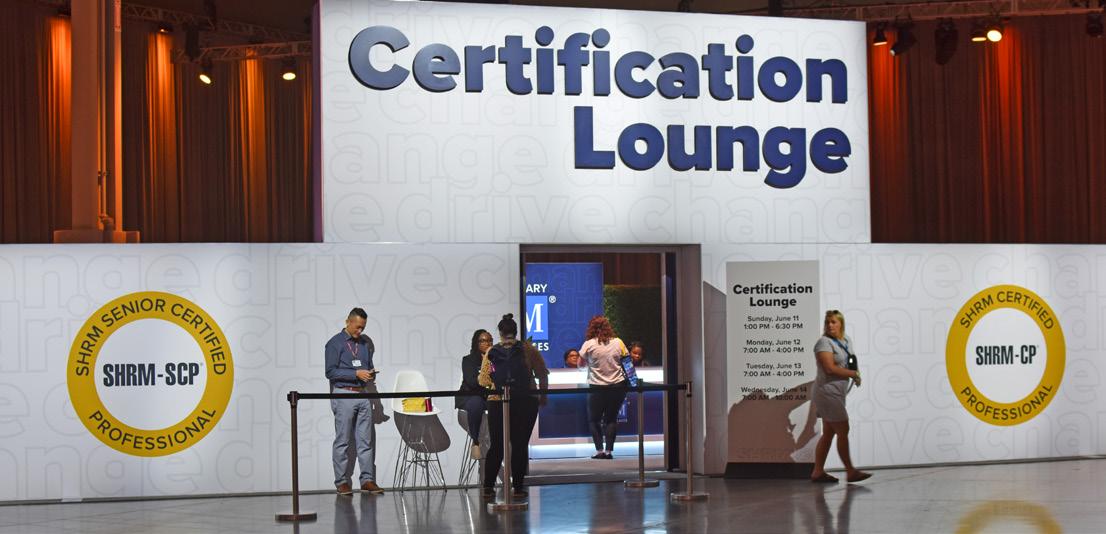
7 www.HRProfessionalsMagazine.com
Your Professional Development Matters
Find the route that fits your schedule, budget and expertise.
SHRM Specialty Credentials: Gain targeted competence in key HR areas
Bring unique expertise to the table
Earn one of 8 specialized credentials
Participate in a SHRM seminar and complete eLearning modules and a final assessment
SHRM PMQ: Build People Manager skills
Discover all aspects of effective people management
Explore real world workplace scenarios
Unlock interactive training to guide your team to success
SHRM eLearning: Learn on your own terms with self-paced HR training
Access courses anytime, anywhere
Choose from 500+ self-paced HR courses
Stay current on the latest industry trends
ACCELERATE YOUR CAREER Visit shrm.org/hrjourney
Overcoming HR Stereotypes
Overcoming HR Stereotypes
By ASHLEY DUGGER
Have you ever proudly mentioned to someone that you work in Human Resource Management, only for them to reply with something along the lines of “Oh, so you hire/fire and plan parties” or “You work in HR, you only care about the company and not the employees”? Maybe you’ve been on the receiving end of something like this: “HR doesn’t understand the business or data.”
While everyone’s perception of what an HR professional does may differ based on their personal experiences with their HR departments, educating employees, leaders, business owners, and others about the true nature of HR is critical as we continue to see a strong, positive shift of HR being viewed as a strategic business partner and work to overcome stereotypes that may still exist in some organizations about what HR really is and how we contribute to business success.
SHRM published an article in 2017 exploring some of the most common portrayals of HR in movies and television series. If you are a fan of “The Office,” then you won’t be surprised to hear that the article described how Toby, the HR manager from the show, was highlighted as one example of how film/TV commonly portrays HR as the villain or the rule enforcer. I’ve dealt with this stereotype personally as employees would often joke that they were coming to the principal’s office or “going to jail” when they would stop by the HR offices.
Over time, our department made sure that we put as much time and energy into being visible around the organization and outside of our offices to chat with employees about non-work-related topics as we did with covering required trainings, updates, policy adherence, etc. This helped us build genuine relationships with our workforce that, in turn, created trust and a sense of psychological safety that allowed them to start stopping by our HR department just to talk, to discuss harder topics they might have felt uncomfortable raising before we had stronger relationships, and to overcome the “HR as villain” stereotype. When I left that organization, an employee said to me, “You’ve changed the way I view HR forever,” and to this day that has stuck with me as a reminder of how bringing an open, empathetic approach to all interactions with employees is critical to overcoming this perception of HR as villain/rule enforcer/compliance police.
Using appropriate humor at work is another way you can work to build and strengthen relationships with employees while at the same time overcoming another HR stereotype: that HR professionals are so serious and focused on compliance that they are unapproachable! HR professionals often rely on a positive sense of humor to get through tough times, build resiliency, and move forward when mistakes are made. Using humor outside of the HR department can help you overcome this stereotype of being unapproachable if you build connections and make work more enjoyable.
Sometimes you can build such strong trust with employees that their willingness to confide in you actually goes too far, and they start to see HR in the stereotype of “guidance counselor” or “psychologist.” Setting clear, appropriate boundaries with employees on the role of HR in regard to how you support both the organization and the employees for things like physical/psychological safety, inclusion, organizational culture, preventing and responding to harassment/discrimination, and ensuring compliance is a great approach to making sure you don’t fall into the stereotype of guidance counselor but still ensure employees know you are there to support their success.

One of the most recent stereotypes I’ve had HR professionals reach out about how to overcome is that “HR doesn’t know the business” or “HR isn’t strategic.” In reality, successful HR professionals must do both of these things. Knowing the business and increasing your businessacumen skills allows you to make more strategic decisions, not only for the HR department but also for supporting organizational goals and success.
Academy to Innovate HR recently noted that the reality of being successful in HR is that you have to understand how a company operates to be profitable, how to use business acumen and data literacy to make decisions and be a strategic partner for leadership, and how HR uses business and data knowledge to increase their profile as a trusted partner in the organization. Take initiative to increase your knowledge in these operational areas by asking someone in your accounting, marketing, or operations department to let you job shadow them, or to do a lunch-and-learn session to better understand their functions. LinkedIn Learning has a variety of online courses, videos, and resources to expand your understanding of business acumen and data-driven decision making. Work with your local SHRM chapter to benchmark how other HR professionals are shifting the perception of HR from administrative to strategic partner and share resources for continued learning in these focal areas.
While numerous stereotypes still exist regarding HR professionals and the work we do, we can all play a part in shifting the narrative and helping those we support and work with to better understand the role that HR can play in business success and employee experience. Showing up as a credible HR activist and demonstrating through high-quality outcomes that drive the business and employee experience to positive new heights will help solidify the perception of HR as a data-savvy strategic thinker, critical decision maker, and supportive partner.
Ashley Dugger, DBA, SHRM-CP Associate Dean and Director-HR Management and Organizational Psychology Programs Western Governors University ashley.dugger@wgu.edu www.wgu.edu
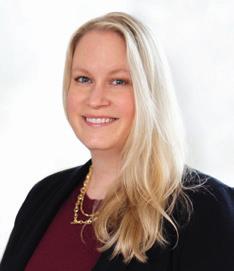
9 www.HRProfessionalsMagazine.com
H H
We are honored to present our eighth installment of
Talking Taboo
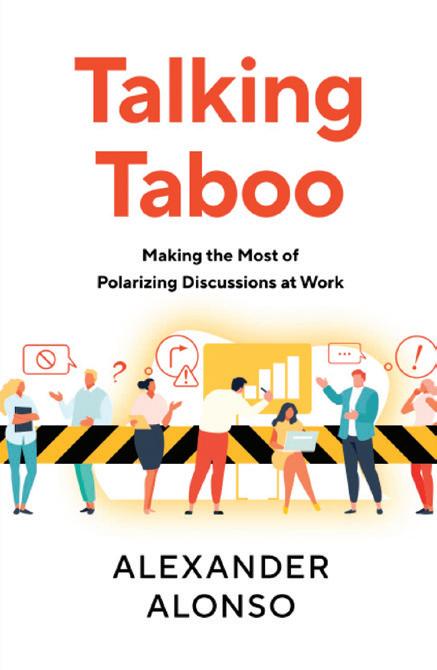
Making the Most of Polarizing Discussions at Work
BY ALEXANDER ALONSO, PHD, SHRM-SCP ALEX IS SHRM’S CHIEF KNOWLEDGE OFFICER.
Chapter 8
Age and Physical and Mental Health
People seem to forget that what is unwise to discuss at a dinner party is even more unwise to discuss in the workplace. The incidents in this chapter primarily involve talking about such delicate topics as health and illness, both physical and mental, as well as aging. The challenging issues presented often leave employers with little choice other than to take action. These stories are especially instructive as organizations continue to negotiate their way through the myriad problems created by the global pandemic.
THE SPREAD OF MISINFORMATION INFECTS MINDS Summary
Supervisors falsely and irrationally claim to employees and outside contractors that the company is exposing them to “COVID water,” leading to their refusal to work, but management takes an empathetic approach and counsels rather than fires the workers. This situation causes a major issue for the company, and the outcome is fair, at best.
10 www.HRProfessionalsMagazine.com
This incident occurred in the summer of 2020 during the COVID-19 lockdown in one of the buildings maintained by our real estate management company. We had trained our onsite maintenance staff on government health guidelines and supplied them with appropriate personal protective equipment (PPE). According to the state labor agency, their jobs were considered medium risk.
An emergency work order came in to fix a water leak coming through the ceiling of an apartment. The company is required by law to remedy certain living conditions in a timely manner, and this situation qualified as a bona fide emergency maintenance need.
The resident of the apartment into which the water was leaking did not have COVID-19, but there was a rumor circulating that the resident of the apartment above, from which the water was leaking, was COVID-19 positive. The onsite maintenance staff—technicians, assistant supervisor, and supervisor— all refused to complete the work order. They said they feared getting sick from “COVID water.” There is no such thing, and their fear was not based on any scientific data or rational information.
Management hired an outside contractor to fix the leak. The company had established a COVID19-compliant practice with its contractors and ensured that all legal disclosures were made. The next day, however, the contractor raised an issue over COVID-19 safety. The contracted technicians had been told by our onsite supervisors that the company was knowingly exposing them to COVID-19. Company executives told the contractor that this was false.
Amidst the unique and changing landscape of COVID-19 regulations, we now had to deal with two issues: our staff’s and supervisors’ refusal to enter a residence to do required emergency work, and our supervisors’ inappropriate and inflammatory communications to staff and outside contractors.
Among the several management teams who got involved to resolve these issues were HR, the communicable disease group, and the C-suite. We sought the approach most suitable to keeping us compliant with COVID-19 guidelines, while prioritizing housing law, healthcare privacy, and safety regulations. We tried to empathize with the concerns of staff even as their supervisors were failing to manage them properly. Therefore, rather than terminating anyone, we decided to provide counseling to everyone.
Read the entire Chapter 8 at www.hrprofessionalsmagazine.com
11 www.HRProfessionalsMagazine.com
Our Health Insurance Model is Unsustainable. Here’s Why.
By WILL BROWN
When it comes to healthcare, we may have a choice as to which carrier we prefer and the type of plan. But ultimately, whatever plan you choose is confined to this thing we call the current health insurance model. And I think we can all admit it’s a system with some notable issues. With escalating costs, increasing complexities, and growing dissatisfaction among consumers, it’s becoming evident that the model in place now (which we all rely on to sleep well at night) is inherently unsustainable. Let’s briefly explore the key factors contributing to the harsh realities of the current health insurance system.
Factor #1: Rising Healthcare Costs
The primary reason for the unsustainability is the one affecting our pocketbooks— the continuous rise in healthcare costs. Medical advancements, technological innovations, and an aging population have all contributed to the increased cost of healthcare services. The burden of these rising costs is shifted onto insurers, employers, and ultimately, the consumers through higher premiums, deductibles, and out-of-pocket expenses. As healthcare expenses continue to outpace inflation and wage growth, the affordability of health insurance becomes a significant concern for individuals and businesses alike.
Factor #2: Lack of Price Transparency

Our current model features a complete lack of price transparency, making it hard for consumers to understand the true cost of healthcare services. The opaque pricing structure, complicated billing systems, and varying reimbursement rates create an environment where consumers are unable to make confident, informed decisions about their healthcare choices. This lack of transparency hinders competition and leads to excessive and unnecessary use of medical services, further driving up costs.
Factor #3: A Fragmented, Complex System
The complexity of the current system worsens its unsustainability. Multiple stakeholders, including insurance companies, providers, employers, and the government, each with its own set of rules, regulations, and reimbursement models, contribute to a splintered system. That splintering results in administrative inefficiencies, duplication of services, and increased overhead costs. Not to mention the administrative burden placed on healthcare providers to navigate the complexities of insurance billing and reimbursement hurts overall patient care and drives up healthcare costs.
Factor #4: Lack of Preventive Care Emphasis
Our model is focused almost solely on reactive care rather than preventive care. While preventive measures have proven to be cost-effective in the long run, the fee-forservice reimbursement model commonly used in health insurance fails to incentivize and prioritize preventive care adequately. As a result, preventable conditions go undetected or untreated until they escalate into more serious and costly health issues. Shifting the focus towards preventive care could not only improve health outcomes but also help control healthcare costs.
Factor #5: Inequitable Access and Disparities
Despite efforts to expand coverage, our insurance model still leaves many individuals without access to affordable and comprehensive healthcare. This gives our more vulnerable populations too many barriers to essential medical services. And where does the burden of uncompensated care fall? Of course, it falls on healthcare providers and ultimately gets passed on to consumers through higher premiums and medical costs.
Achieving a sustainable healthcare system requires addressing these disparities and ensuring universal access to quality care for all individuals.
This will simply not do. And if we don’t proactively address these issues, the sector may have to crumble to be rebuilt. I don’t want it to get that far. That’s why I support a bootson-the-ground-style campaign where professionals like you and me start asking questions—where we ask (and then keep asking) those who control this system to address cost containment, prioritize preventive care, and ensure equitable access to healthcare.
Let’s start more conversations. And if you’d like to discuss with me how I help companies combat rising costs and more, I’m here. Permanent solutions to significant problems are never easy. But our health and our family’s peace of mind is worth it.
Contact us at TheBenefitsGroup.com to brainstorm with us on how to address these five challenges.

Pretend you live in a dystopian and superheroes are the only To save humanity, this league band of supervillains or 2 employees. Everyone in HR would immediately It's a funny question, but what top talent in the real world. much competition." With by a candidate and a labor it's getting tough out there. So, here you are, trying to while you craft the most app To attract, interview, hire, company culture and stay even for superheroes. The solution is multi-pronged, In fact, every superhero unstoppable. So who's on your team? Right think of maybe once a year what they provide to you loyalty and very lives. I'm Will Brown and I'm a broker crusader" to my clients-to HR professionals eyes of their employees. But what about rising costs? Insurance premiums are you need a broker who: • Understands the levers that drive premiums. • Knows how to search for creative strategies. Recognizes employee goals, so you only pay for the insurance perks your team • Performs a thorough yearly analysis rather than adopt the "set and forget" attitude At The Benefits Group, we are defying the "order-taker" broker stereotype. We being underserved in their ability to offer Fortune 500 benefits to their employees. change that.
a benefits broker change the world? For your employees, I believe we can. the market. In virtually every competitive situation, we win. Not all heroes wear superhero to your employees. Let your employees see how much you care through Let us turn you into a Benefit Superhero! 12 www.HRProfessionalsMagazine.com
Can
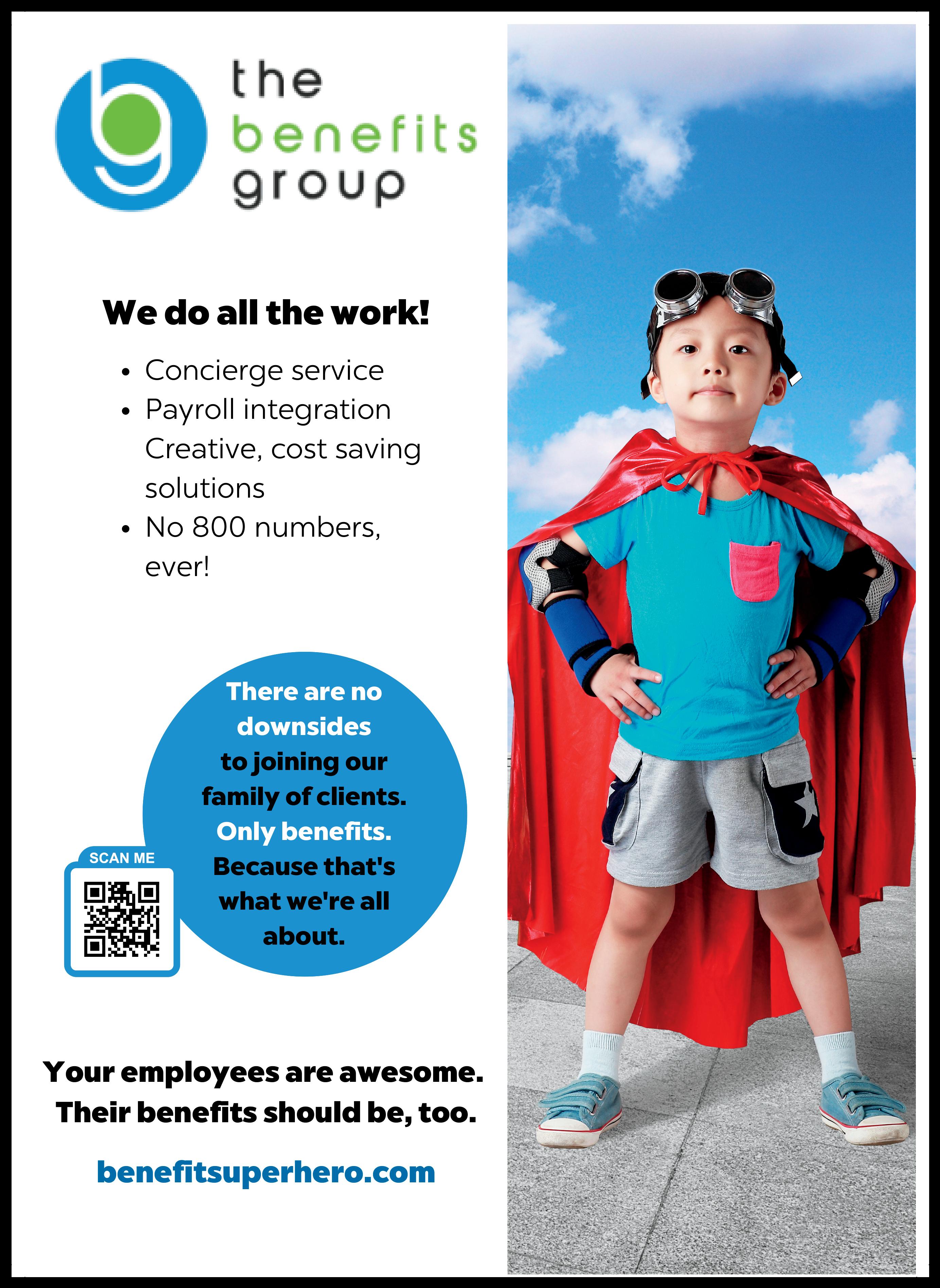
• 13 www.HRProfessionalsMagazine.com
Run-Hide-Fight for Your Life. But Does it Work?
By TIM KECK
When I started teaching workplace violence prevention in 1995, I was one of very few nationwide who were doing it. I started because my police department had been the victim of a workplace shooting when a local bad guy committed a double murder, kidnapped his ex-wife, and walked in the station’s front door in small-town Arkansas. When my friend Ray stood up to say, “May I help you?” the bad guy shot him three times and took over the building.

That was a very long night.
In the aftermath, I asked myself two questions. The first was, how did we let this happen? The answer is that we believed the myth that nothing like that would ever happen to us. Sound familiar?
Statistically, we were right. The likelihood of someone committing murder and then taking over the police building was extremely low. Yet, it happened. You see, no one thinks something will happen to them until it is happening to them. At that point, the statistics aren’t much comfort.
The second question I asked myself was whether anyone out there understood how to prevent target violence. The answer was yes. The premier group in that regard is the United States Secret Service. The sad fact is that there are thousands of people who would assassinate the president, no matter who he is, on any given day. Yet when was the last actual attempt? Reagan in 1981.
Because the method used by the Secret Service works.
They use a methodology known as Threat Assessment and Management, which isn’t about sidearms and sunglasses. It’s about learning the warning signs of violence, watching for them to appear, then working in partnership to de-escalate the situation and keep everyone safe.
The entire point is prevention
So why does all active shooter training begin when the bad guy arrives with a weapon?
Everything from A.L.I.C.E. to Avoid, Deny, Defend to Run, Hide, Fight (RHF) begins when the bad guy shows up with a gun. But what if the bad guy never showed up with a gun in the first place? It seems like that would be better.
Well, I have good news. What works for the Secret Service can work for us too.
For years, we have been working with organizations nationwide to set up full-fledged Threat Assessment and Management (TAM) programs to keep their people safe. Here is what that consists of:
1. Develop a defensible policy.
2. Construct a practical plan.
3. Train everyone on the policy and the plan.
4. Training includes:
• Warning signs of violence for everyone.
• In-depth training for leaders/HR/Safety/ Security due to their critical role.
• Worst-case scenario mitigation and defense just in case.
Of course, the real question is whether it is effective.
I have been managing threats against people and organizations for over twenty-five years. Here is my personal track record, along with that of the organization I’m affiliated with, SafeHaven Security Group,

One hundred percent effective.
In other words, once we have begun managing a situation, we haven’t had one, not one, that resulted in violence. That’s hundreds of cases all over the nation. In every instance, we have kept the target from becoming a victim.
Yet, we still plan for the worst. Because it is unrealistic to believe we can prevent all violence, we still train clients on what to do if the bad guy shows up with a gun, just in case.
That training goes far beyond RHF.
Our training is based on solid principles developed by neuroscience and proven effective by Tier 1 operators like Navy Seals. It recognizes that telling someone to do something they can’t physically do is programming them to fail. Let me break that down.
RUN
Seems like solid advice at the outset. But how many Americans “run?” Like really run. A fast sprint as hard as they can go. I’ve been asking that question in seminars for years, and very few hands go up.
Do you know what happens when your brain tells your legs to “run,” but you haven’t sprinted since 1996? You run about ten feet and fall. Now how easy are you to shoot?
Instead, we teach them to evacuate. If you can run, run. If you can walk, walk. If you’re in a wheelchair, wheel. I know it seems like semantics, but the truth of how the brain stores information and then recalls it under stress proves it is far more.
HIDE
It feels like a good option until you consider how people respond under stress. When you train people to hide and show them an image of someone hiding under a table, do you want to guess what they do under the stress of an actual incident? They hide under their desk.
What the heck is that going to do!?!
The desk doesn’t stop bullets, but it does restrict your movement to such a degree that someone trying to kill you would have a hard time missing.
Instead, we teach Lockdown in a secure room. That means a room with a locked door and no glass: a bathroom, a storeroom, an office. If the shooter can’t visually target you, it’s much harder to hit you. Plus, getting through a locked door is far more challenging than anyone realizes. Just stay low and don’t come out until the police arrive.
Note: My motivation for writing this article was after reading the text stream between a receptionist and her husband during a shooting event. She hid under her desk because that was what she knew to do. When the killer walked up and found her there, she didn’t stand a chance.
FIGHT
This is everyone’s worst nightmare. The RHF video addresses it with a warning to fight as if your life depends upon it because it does. We agree. But RHF doesn’t teach any stress-proof principles, tactics, or techniques. Telling someone to fight without any actual instruction on how to fight won’t likely end well.
The fact of the matter is that it is possible to win a gunfight when you don’t have a gun. Almost anyone can do it. And the biggest barrier isn’t a lack of strength, speed, or stamina. It’s a lack of mental preparation.
Which is why we train your brain for success. Then we teach a couple of simple principles through a process called Targeted Kinetics. Then you walk away prepared.
The method of RHF was developed to offer something to the public to help them survive. It was a good start. But we can do better. Let’s take what the Secret Service can teach us about protection and combine it with what we have learned in 40 years of mass shootings. Let’s take Threat Assessment and Management nationwide and save lives.
To learn more about Threat Assessment and Management and how YOU can be the hero and protect your people, visit SafeHavenSecurityGroup.com.
Tim Keck,
Safehaven
Group tim@safehavensecuitygroup.com www.safehavensecuritygroup.com
Senior Consultant
Security
14 www.HRProfessionalsMagazine.com
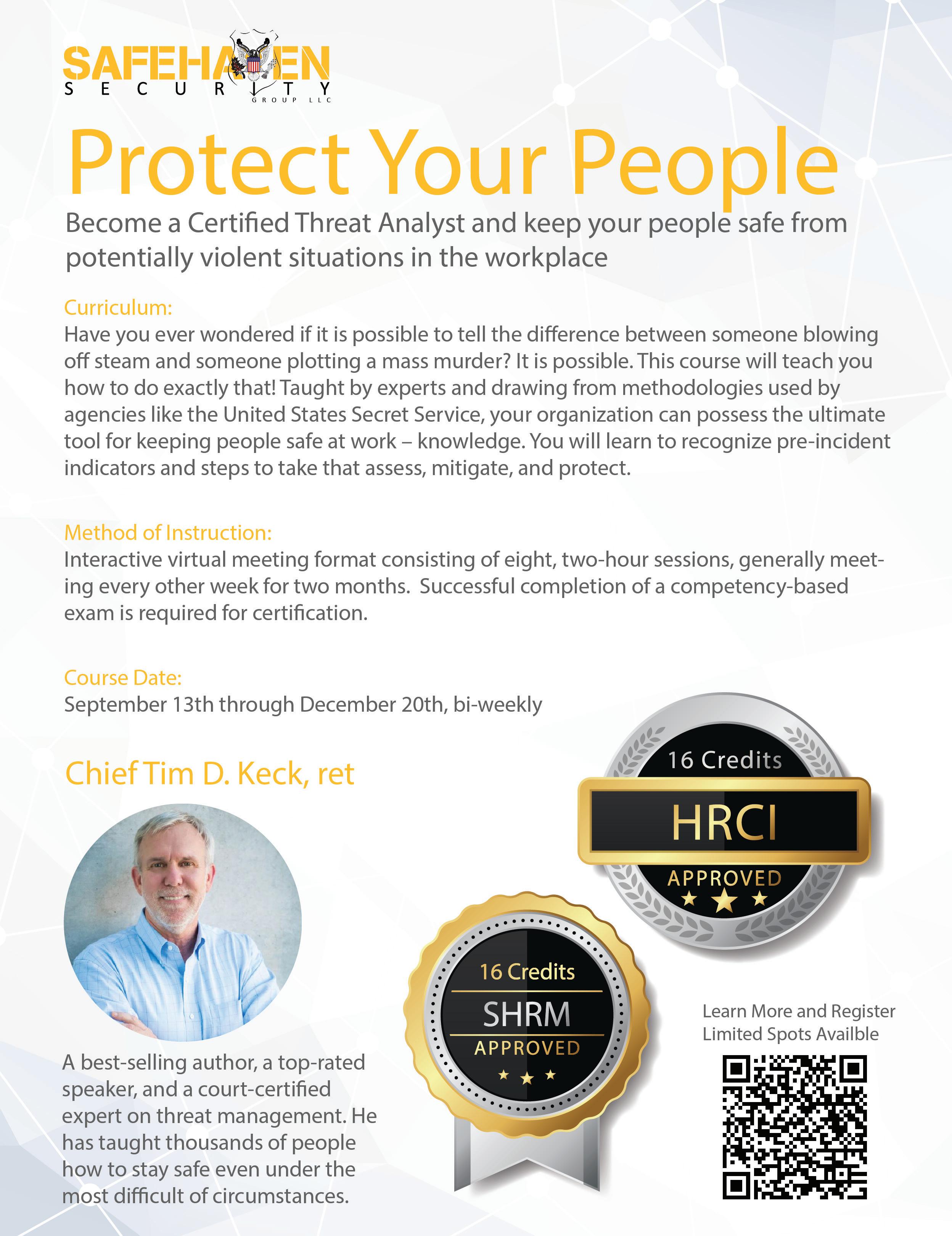
There is an old saying that politics makes for strange bedfellows. The General Counsel of the National Labor Relations Board (“Board”), Jennifer Abruzzo, issued a Memorandum that combined two things in the law not often (if ever) thought of in the same breath – employee rights under Section 7 of the National Labor Relations Act (“Act”) and noncompete agreements.
What Does the Memorandum Provide?
In short, Ms. Abruzzo believes that “the proffer, maintenance, and enforcement of such agreements violate Section 8 (a)(1) of the Act.” Section 8 (a)(1) generally prohibits employers from interfering with, threatening or coercing employees in the exercise of rights granted to them under the Act.
Ms. Abruzzo submits that noncompete agreements in general tend to chill employees in their exercise of rights under this Act. This is because if employees know they may have a more difficult time finding alternative employment if they are discharged. They will be less likely to exercise their right to work together mutually to organize a union or in some manner improve working conditions.
In the Memorandum, Ms. Abruzzo says there are five specific settings wherein noncomplete agreements chill employees in the exercise of their rights under the Act. The first is that such agreements chill employees from “concertedly threatening to resign to demand better working conditions.” Such threats could be rendered futile if the employees do not have access to other employment opportunities in their chosen field.
Second, and relatedly, noncompete agreements discourage employees from carrying out concerted threats to resign to obtain better working conditions. Interestingly, Ms. Abruzzo notes that current Board law does not expressly recognize a right to concertedly resign under the Act. She asserts, however, that “such a right flows logically from settled Board law.”
The Law Makes for Strange Bedfellows: The NLRB and Noncompete Agreements
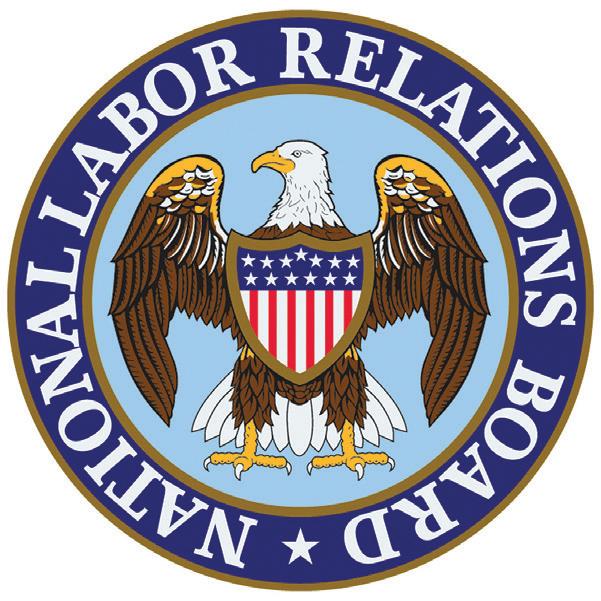 By HOWARD JACKSON
By HOWARD JACKSON
Third, Ms. Abruzzo says that noncompete agreements “chill employees from concertedly seeking or accepting employment with a local competitor to obtain better working conditions.” In this regard the Memorandum goes further and says the protection would extent to “a lone employee’s acceptance of a job as a logical outgrowth of earlier protected concerted activity” by that employee.
Fourth, such agreements “chill employees from soliciting co-workers to go work for a local competitor as part of a broader course of protected concerted activity.” In this situation, employees could hesitate to recruit others based on fear of retaliatory action by the employer whose agreements were being breached.
Fifth, noncompete agreements “chill employees from seeking employment, at least in part, to specifically engage in protected activity with other workers” at a different employer’s workplace. For example, an employee subject to a noncomplete may be discouraged from leaving to go to another employer in the industry where union organizing is being planned or is taking place where the employee wants to work for an employer who is represented by that union.
The Memorandum leaves open the possibility that some noncompete agreements could be justified where they are “narrowly tailored to special circumstances justifying the infringement on employee rights.” The Memorandum does not provide examples of such circumstances, and does note that the desire to avoid competition, or to protect investment in training, would not justify a noncomplete provision. In addition, the Memorandum notes that such agreements would not be reasonable when imposed on low or middle wage workers who do not have access to trade secrets or other protectible interests.
What Are the Implications?
First, note that the Act’s protections are for “employees” and not for “supervisors”. In other words, nothing about the Memorandum would apply to a noncompete agreement with the Vice President of
16 www.HRProfessionalsMagazine.com
Marketing, for example. The Act has a specific definition of “supervisor” and not everyone with that title will qualify. An employer who wants to have a noncompete agreement with a first level supervisor would be well advised to analyze the position to determine if it in fact qualifies for supervisor status under the Act.
Noncompete agreements are generally not enforceable with respect to rank-and-file employees under many State laws. This is certainly true in Tennessee, where an employer must establish a “protectible interest” to enforce a noncompete agreement. In general, protectible interests can include access to trade secrets or similar information or the employee having become the “face of the company” to customers. Accordingly, while the Memorandum spells out various ways that Ms. Abruzzo wants the Board to find noncompete agreements inappropriate under the Act, the reality is that such agreements are commonly not enforceable for the great majority of employees covered by the Act simply based on State laws.
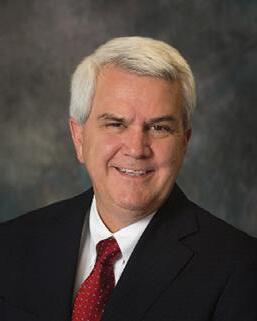
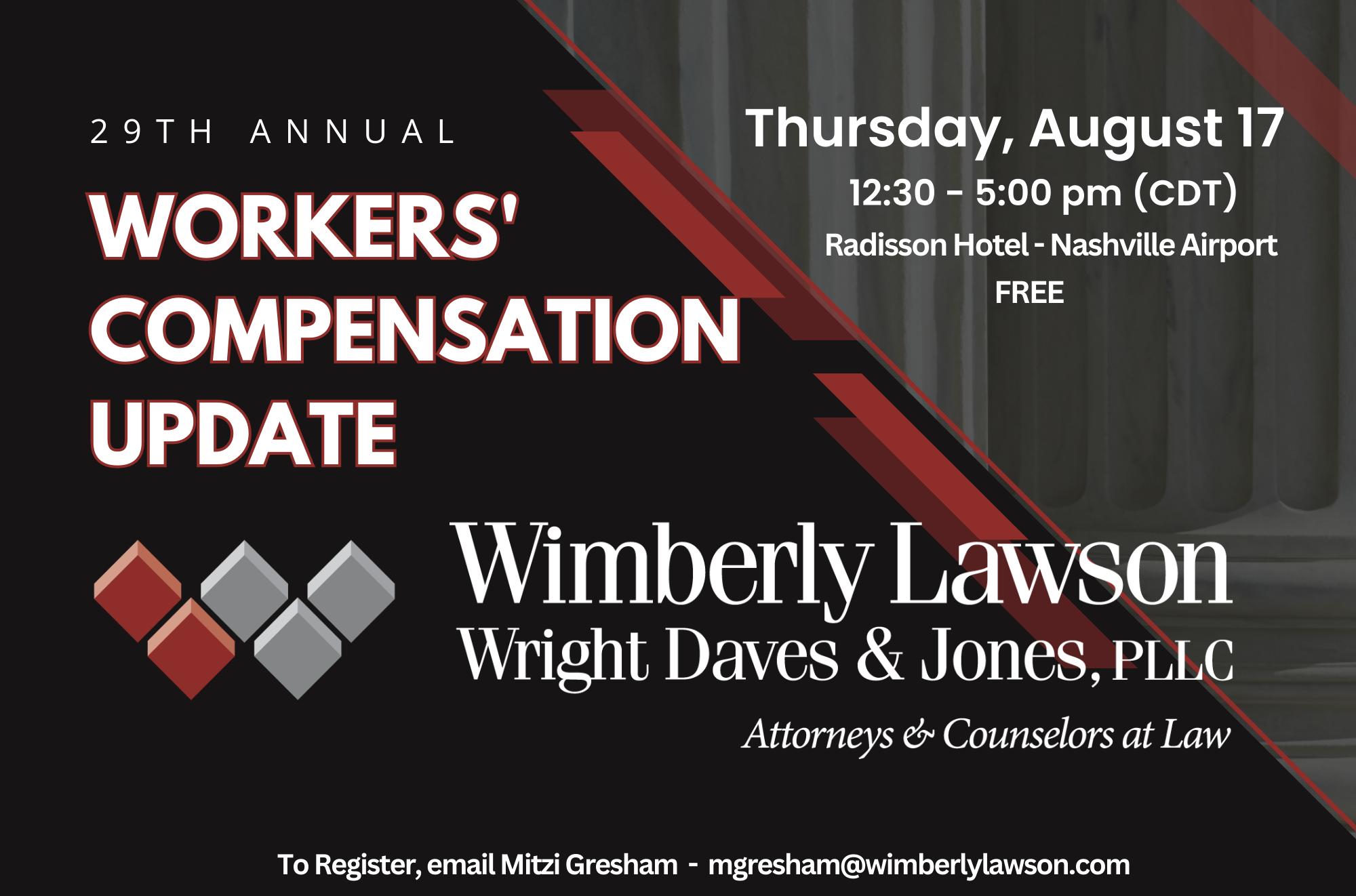
There are other types of employee restrictive agreements that can be used for protection. For example, where employees are exposed to trade secrets or other competitively sensitive information the employer can utilize a confidentiality agreement. Of course, the Board recently found that certain types of confidentiality obligations in severance agreements were overly broad. Nevertheless, where a confidentiality obligation is written so that it clearly applies to the sharing of competitively sensitive information it can be lawful.
Conclusion
The Memorandum is yet another illustration of just how broadly the General Counsel views employee protections under the Act. It will not be surprising if the current Board accepts some of the views expressed in it as factually appropriate cases come along. Nevertheless, employers retain the ability to use restrictive agreements for protection with respect to management and technical employees who have access to trade secrets and other competitively sensitive information.
17 www.HRProfessionalsMagazine.com
Howard B. Jackson, Member Wimberly Lawson Wright Daves & Jones PLLC Knoxville, Tennessee office hjackson@wimberlylawson.com
P UT THE L AW TO WORK FOR YOUR C AREER
LEGAL TRAINING FOR HR PROFESSIONALS

Gain the legal knowledge and skills to navigate contracts and contract drafting, labor laws, business immigration, dispute resolution, and employment discrimination law. Make an impact in your career with the Juris Master degree by enhancing your knowledge of employment law.
» Online and Hybrid Options
» Choose from four concentrations:
Business Law
Health Care Law
Data, Privacy, and Tech Law

Employment Law and HR
» Learn more: law.emory.edu/jm
» Email: jmadmission@emory.edu
e Emory Law Juris Master program has been immensely valuable in my daily work and provided me with the legal knowledge essential for executive level human resources leadership."
BETSY HAMES ASSOCIATE DEAN & CHIEF HUMAN RESOURCES OFFICER, DUKE UNIVERSITY SCHOOL OF MEDICINE 2014 JM GRADUATE
18 www.HRProfessionalsMagazine.com
Drive Change in Your World of Work.


RESEARCH $5,000 $3,000 QUARTERLY $70 HR JOBS $299 WEBCASTS $300 COMPLIANCE UPDATES $1,500 EXPRESS REQUESTS $1,800 HR TEMPLATES $1,000 HR KNOWLEDGE ADVISORS $750 HR MAGAZINE QUARTERLY ADVISORS
Nearly 325,0000 HR professionals use our resources to impact their workplaces for the better. Now it’s your turn. Join now and access more than $13,000 worth of HR tools, research and expertise for only $244 annually. SHRM.ORG/ALLTHINGSWORK 19 www.HRProfessionalsMagazine.com






3-8 MARCH 2024 YOU ARE INVITED! THE HR CONFERENCE CRUISE DEPART FROM MIAMI Miami • Labadee, Haiti • Falmouth, Jamaica • Miami REGISTER WITH JUST A $100 DEPOSIT! WE'LL INVOICE FOR THE BALANCE EXPLORER OF THE SEAS CONFERENCE CENTER NETWORKING Submitting for 16.25 recert credits JOIN US FOR "THIS IS A NEW DAY" hrcruise.com sm Royal Caribbean
Cruise
March 3-8, 2024
Departing from Miami, FL $699 CONFERENCE REGISTRATION COST
EIGHT ON-BOARD SESSIONS
FOUR PRECONFERENCE WEBINARS





Five Stateroom options from which to choose:
Junior Suite (w/balcony) - $ 1099 per person / based on Double Occupancy
Oceanview Stateroom with balcony - $ 819 per person / based on Double Occupancy
Oceanview - $ 659 per person / based on double occupancy
Promenade - $ 709 per person / based on double occupancy
Interior - $ 599 per person / based on double occupancy
Register now at :
hrcruise.com

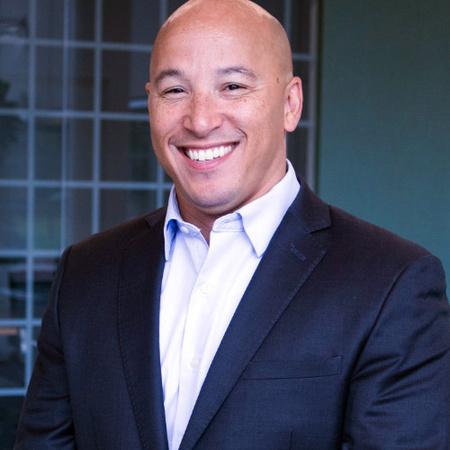



HR Conference
Join us for "This Is A New Day!"
T H E S P E A K E R L I N E U P
Mallory Herrin
George Rogers
Christie Engler
Mike Butler
Dorice Horenstein
Julie Develin
Ben McCall
KEYNOTE
KEYNOTE
KEYNOTE
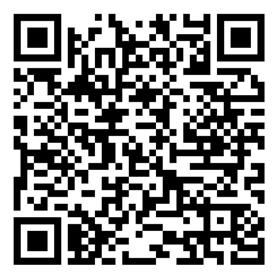






Cara Brookins A testament to resilience and strength, this software coder rebuilt her life by constructing a home for her broken family using YouTube tutorials in a story that went viral.
Ryan Leak Inspiring workplace cultures rooted in values, passion and risk taking. Using humorous wisdom and moving narrative to inspire people to become the best version of themselves. Author of Chasing Failure
Robyn Benincasa World champion adventure racer, 2014 CNN Hero, full time firefighter, New York Times best-selling author, 3x Guinness World Record Endurance Kayaker SEIZE THE OPPORTUNITY HR F L ORI DA Rosen Shingle Creek | 9939 Universal Boulevard | Orlando, FL 32819 THE 4 5 TH ANNUAL WHY ATTEND? •Largest HR Conference in the Southeast •Opportunity to Network with 2,500 Attendees •Over 110+ Sessions of Valuable Insight •Recertification Credits REGISTER AT HRFloridaConference.org SAVE THE D ATE CONFERENCE & EXPO AUGUST 27 – 30, 2023
The job market is hot... But so is inflation.
TIME TO INCREASE YOUR EARNING POTENTIAL
COMPLETE YOUR HR MASTER’S DEGREE ONLINE

Illinois’ accredited and internationally-recognized master’s program is available online, tailored to the needs of working professionals. Whether you have prior experience in human resources or you are transitioning from another function, you will find immediate applicability to your work. The MHRIR curriculum is taught by experienced faculty and industry experts and designed to build business acumen and a strong foundation in the field.
Students have an average of eight years of experience in HR or a related business function, and benefit from peer networking in selective classes. The student body includes a diverse and experienced group of working professionals from long-standing corporate partners like bp and PepsiCo, in addition to professionals in non-profit and consulting.
Beyond the classroom, students build their networks and participate in an active community of practitioners. Seventy-three percent of students are promoted while still in the program or within six months of graduation.
For more information, visit go.illinois.edu/LER_Online.
BOOST YOUR PROFESSIONAL KNOWLEDGE
The School now offers a certificate program geared towards professionals who want to freshen their HR knowledge, or for those with little HR background who wish to build competency. The program has four tracks: Fundamentals of Human Resources, Human Resources Management, Compensation Best Practices, and HR Data Analytics. Each track has three courses (12 credit hours total, four credit hours per course), and can be completed in 7-10 months. Candidates that complete one or more certificates can count their certificate credit towards our full master’s program if they wish to continue their journey.
Full information about the certificate options is available at go.illinois.edu/LERCertificate.
For any questions about our online offerings, email Eden Haycraft, Associate Director, Graduate Online Programs at ehaycra@illinois.edu.
23 www.HRProfessionalsMagazine.com
On average, students receive a $20k salary increase after completing the program.
Healthcare Must Be Focused On The Patient Journey
By DENISE CABRERA
Asthe healthcare landscape has evolved to value-based care, employers, payers, and pharmacy benefit managers (PBMs) have implemented new strategies to improve quality of care and affordability. Ninety percent of the nation’s $3.5 trillion in annual health care expenditures are for chronic and mental health conditions.1
Who really controls your drug spend? It is not the PBM formulary alone, nor is it providers or hospitals. Looking across all stakeholders, we should begin and end with each patient’s individual journey. Their genetic code. Their lifestyle choices, especially smoking, eating a healthy diet, and exercise. Each individual makes decisions like these that can help prevent diabetes and heart disease. That’s why, now more than ever, it is imperative that healthcare is focused on the patient journey.
Educating and empowering individuals to take better control of their health starts with engagement and a comprehensive approach that considers both affordability and quality of care. Engaging them early in the journey is vital to prevent disease progression and comorbidities that will ultimately be much more costly if left untreated.
More than 37 million people in the United States have diabetes, representing 12% of the population. Predictive modeling indicates that 8 million people are undiagnosed. Due to lifestyle choices, it is estimated that 96 million adults have pre-diabetes, representing over 35% of the adult U.S. population.2
A newly diagnosed patient with Type 2 diabetes will incur an average annual healthcare spend of $25,000. If not well controlled with first line medication and lifestyle changes, patients can progress to more expensive self-injectables that cost as much as $40,000 per year. If insulin is added, the cost doesn’t increase significantly. But it does indicate disease progression, specifically microvascular and macrovascular damage that can cause poor blood circulation, damage to the retina, heart disease, stroke, kidney failure and amputation of feet or legs.3
Heart disease is the No. 1 cause of death in the U.S., according to the Centers for Disease Control and Prevention. Nearly 860,000 Americans die every year from heart disease and stroke combined, representing one-third of all-cause mortality. The cost of care for these diseases is a significant burden, costing our health care system $200 billion per year and resulting in an additional $130 billion in lost productivity for employers.3
Patients with diabetes are typically treated with drugs to manage their blood glucose (sugar). Consideration should also be given to managing their triglycerides (the most common type of fat) and cholesterol. Standard treatment guidelines include close monitoring of cardiovascular disease, and many patients are placed on a drug such as an ACE inhibitor to control their blood pressure and improve blood circulation. This is vital to ensure adequate blood circulation to their kidneys and lower extremities (legs and feet).
The year 2021 marked the 100th anniversary of the discovery of insulin, a lifesaving therapy for millions of people. Insulin prices have increased 600 percent over the last 20 years causing many consumers to be at risk of non-adherence due to cost.4
Solving the Affordability Issue - Legislation Influence
The Inflation Reduction Act, a spending package Congress approved in 2022, capped insulin out-of-pocket costs at $35 for Americans with Medicare. This does not apply to consumers with commercial insurance plans who may pay the full price for medications under high-deductible plans. For these individuals, out-of-pocket expenses can be $1,000 or more a month on insulin alone.5
Eli Lilly, a manufacturing pioneer in diabetes treatments, recently announced a 70% cost reduction for two of its most popular insulin products, Humulin and Humalog, for uninsured patients and those with private health insurance. Lilly also reduced the price for its generic lispro from $126 to $25 a vial. These price reductions are expected to improve medication adherence since individuals will be better able to afford them. These changes follow efforts by the federal government, the California state government, non-profits and some companies to make insulin more affordable for the more than 7 million Americans with diabetes who require it.6
Lilly’s actions have placed significant pressure on their competitors, Novo Nordisk, and Sanofi. Making their insulin more affordable to cash-paying patients will encourage pharmacies like Mark Cuban’s Cost Plus Drug Co. and Blueberry Pharmacy to add them to their low-net-cost formularies.6
CivicaRx, a non-profit drug manufacturer owned by several Blues plans, intends to manufacturer affordable insulins in 2024. Civica will produce three insulins: glargine, lispro and aspart, which are comparable to Lantus, Humalog and Novolog, respectively. They will be available in vials and prefilled pens. Civica plans to set a recommended price of no more than $30 per vial and no more than $55 for a box of five pen cartridges, a significant discount to prices charged to uninsured individuals today. Their policy for pharmacies and others who choose to distribute Civica insulins reflects its philosophy that prices to consumers should be fair, reasonable, and transparent, and no higher than the public, recommended price.7
Resources and References
1. https://www.cdc.gov/chronicdisease/about/costs/index.htm
2. The Facts, Stats, and Impacts of Diabetes | CDC
3. American Diabetes Association. Economic Costs of Diabetes in the U.S. 2018;41(5):917-928
4. Prevalence and Correlates of Patient Rationing of Insulin in the United States: A National Survey acpjournals.org
5. JAMA Health Forum – Health Policy, Health Care Reform, Health Affairs
6. Eli Lilly Will Cap Insulin at $35: What to Know (healthline.com)
7. Civica to Manufacture and Distribute Affordable Insulin - Civica Rx
Denise Cabrera, Senior Vice President Pharmacy Practice McGriff Denise.Cabrera@McGriff.com McGriff.com

24 www.HRProfessionalsMagazine.com


Transform your employee benefits from an expense to a competitive advantage...with McGriff MORE InsightsTM Our proprietary approach helps you quantify and achieve optimal plan performance across four key areas of your employee benefits program – Managing Costs, Operational Efficiency, Risk Mitigation and the Employee Experience by answering three key questions: • How is your organization doing? • Where should you aim? • What’s the value in getting there? By optimizing benefit plan selection, design, management, and employee engagement, McGriff MORE InsightsTM can help turn your benefits program into a real differentiator that aligns with your organization’s culture and business objectives. Visit www.McGriff.com to learn more. © 2023 McGriff Insurance Services, LLC. All rights reserved. McGriff Insurance Services, LLC is a subsidiary of Truist Insurance Holdings, Inc.
Why Your Organization Should Re-Think Social Media Monitoring

Many people view social media as a doubleedged sword. On one hand, it’s an informative way to stay in touch with loved ones and connected to the community. On the other, it can be a place where folks spew hate. Whichever side you fall, social media’s power is undeniable.
Nothing sheds more light on this than several shootings of recent years. Quite often, the perpetrator has hinted (or outright announced) their nefarious intentions. Would a proactive stance regarding social media have stopped these tragedies? Possibly.
It’s time for organizations to consider implementing a social media screening and monitoring program.
What Is Social Media Screening and Monitoring?

Numerous organizations have been screening job applicants’ social media profiles for over a decade now. And with good reason. While a traditional background check uncovers crimes a person has been caught doing, social media screening uncovers what they haven’t been caught doing YET.
Social media screening:
• Sets keywords related to intolerance, hate, and threats of violence. It then cross-references the applicant’s name and other identifying factors and scours posts on the most popular social media channels.
• Searches a large database of “hate websites” to see if the person posts or comments on those.
• Uses specific words to find negative posts about a person’s employer, school, or other organization.
• Returns information on applicants’ attitudes towards religion, race, sexual orientation, age, and other protected factors.
The Importance of a Third-Party Screener
Organizations may be tempted to handle social media screening in-house but should avoid doing so. If, for example, the organization found out a person they were investigating was disabled, they could never prove the knowledge didn’t affect their hiring decision.
Third-party screeners can mask protectedclass information and only return relevant data that could affect an organization’s safety. That way, they get the best of both worlds; a compliant, fair screening process and thoroughly vetted people.
By SONYA WEATHERS
Who Should Your Organization Screen?
When social media screening first became available in background screening, job candidates were the primary subjects. Now, however, organizations are branching out and screening:
• Current employees. Running a monthly or quarterly social media search can uncover issues like drug abuse, negative company comments, and unhealthy attitudes toward protected classes of people.
• Volunteers. It’s not only full-time employees who pose a threat to the workplace. Volunteers can be risky to have in the workplace, too. This is especially valid for organizations that work with vulnerable populations.
• Always getting written authorization from the person before conducting a social media screen. If you plan to monitor their profiles, make sure the authorization is evergreen.
• Never ask for their social media passwords or other private information.
• Only use the information you find that is relevant to your company. For example, if they trash their boyfriend or get an eyebrow-raising piercing, those actions shouldn’t impact your organization.
• Inform the subject if the social media screen turned up anything that would cause you to take adverse action against them.
What Are the Benefits of Social Media Monitoring?
Several far-reaching benefits stem from monitoring your employees, volunteers, and students on social media.
• Maintain on-site safety. Serious issues like hating a specific population or posting about doing damage to a company are big red flags. Seeing them early can help organizations mitigate the risk the person poses to their staff, customers, and students.
How Can You Set Up a Compliant Screening and Monitoring Process?
Executing a social media screening and monitoring process is basically an extension of your current background screening practices.
• Choose an experienced screening partner. Find a company that has provided social media screening to organizations like yours.
• Decide what information you will (and won’t) screen for. For example, you may want to know about hate speech but not want to be informed if the subject posts pictures of them drinking.
• Determine where and how often you will screen. Screening once a month is the standard best practice, but you can screen more frequently or less often, depending on your objectives.
• Train your HR staff. Your HR team should be educated on what social media screening is and how it works.
Once you’ve laid the groundwork for using social media screening and monitoring, stay in compliance by:
• Protect the organization’s reputation. If one of your associates uses social media to post racist, sexist, or homophobic material, it could damage your organization’s image. Proactively dealing with these issues lessens the impact.
Protect Your Organization and the Vulnerable Populations You Serve
Negative comments toward specific communities, threats of violence, and participating in the many online hate groups are often precursors to harmful actions. By extending traditional background screening processes, organizations can leverage user-generated material on social media to their advantage. A professional third-party background screening vendor can help you set up a cohesive social media screening and monitoring policy for your current employees, volunteers, and students. The information you uncover may protect your organization’s reputation. It may even save lives.
Sonya Weathers National Accounts Executive Data Facts, Inc.

sweathers@datafacts.com www.datafacts.com
26 www.HRProfessionalsMagazine.com
You’re invited! Become a better speaker.
Maybe you don’t have nerves of steel. That’s ok. We can help you prepare for your big presentation from every angle. Our proven methods teach you how to manage your nerves, handle sticky situations and incorporate humor to engage your audience.

Your future is calling. Sign up today!
Speakers Training Camp
2-day workshop in Charlotte NC, August 21 and 22 Hilton Garden Inn Charlotte/Ayrsley
Just minutes from the airport, shopping and restaurants.
Call 800-473-1969 or visit successworks.com to register.
Ensuring Claims Payment Integrity For Your Self-Insured Health Plan

• AI-based software for identifying claims payment and processing errors


• Recoupment expertise to recover funds from improperly adjudicated claims
• Capabilities for ongoing monitoring of claims payments to uphold plan efficacy
• Timely guidance to assure ERISA compliance

TWO GREAT FREE ITEMS FOR YOU AVAILABLE NOW!
1. BCI’s “Summary Statement” which we will create from your recent plan claims data to advise you of discrepancies/ irregularities in claims payments and/or confirmation of proper adjudication.
2. BCI’s new 3-Part White Paper consisting of our “Consolidated Appropriations Act of 2021 Synopsis”, “Guidelines for Administrative Agreements”, and “Legal Q&A” prepared by BCI’s legal department.
To request these free items today, please email us… Benefits Claims Intelligence Admin@BenefitsClaimsIntelligence.com
www.BenefitsClaimsIntelligence.com
27 www.HRProfessionalsMagazine.com
Speakers Training Camp is recognized by SHRM to offer Professional Development Credits (PDCs) for SHRM-CP® or SHRM-SCP® recertification activities.
Innovation, and HR Collaboration
 By AMY SCHABACKER DUFRANE
By AMY SCHABACKER DUFRANE

I’mveering off my usual topics this month to offer a travelogue. A few months ago, I had the absolute pleasure of visiting the ultimate start-up nation, Israel, as part of a group of HR and talent management professionals. Organized by two of the HR industry’s most remarkable thought leaders, Gerry Crispin, SPHR and China Gorman, aPHR, with support from Nanda Journeys, our goal was to learn how companies hire, train, deploy and retain their people.
Established in 1948, Israel is regarded by Jews, Christians, and Muslims as the Biblical Holy Land. Among its sacred sites is the city of Jerusalem, one of the oldest cities in the world. Known for its strong technology sector powered by innovation and highly educated workforce, military service for men and women is compulsory. Israel has many communications, software, information systems, finance, medicine, and law professionals. International business is conducted in English, with local business more often in Hebrew, and the typical work week runs from Sunday through Thursday.
We met with a variety of organizations, including the Israeli Government Workforce Committee, US Embassy, many HR technology solutions providers, and local businesses. We also had the good fortune to visit noteworthy sights: the Old City of Jerusalem, the Church of the Holy Sepulcher, the Wailing Wall, Bahai Gardens, and much more.
Israel has a fast-paced business environment that rewards personal connections and networking. The culture places a great deal of emphasis on getting to know others and hospitality. We were hosted several times during our trip, and these moments really made us feel connected and valued as visitors to this energetic country.
Overall, I was mesmerized by their talent. The HR talent, the talent they seek, the talent they train, the talent they retain. The depth of collaboration and innovation. The lasting impact and learnings from the shared military experience. And how much we are all the same, even given our geographic distance and unique challenges, One of my fellow travelers, Marti Bookstein, SPHR, said it best: “I appreciated meeting new people, learning new concepts and ideas, and attempting to verify the (presumed) worldwide human elements of work; people everywhere indeed have their idiosyncrasies, but we are surely more alike at heart than we may want to admit. And somehow that's reaffirming.”
Our group was also struck by the practical and resourceful Israeli mindset. It wasn’t entirely surprising, given the courageous history behind the founding of the country and its service requirements. Marti was reassured to know that even with mandatory military service, some entry-level workers required training to learn basic workforce skills and behaviors such as teamwork. Consistent with the culture,
there’s strong encouragement to face problems individually with critical thinking, going back over and over until a solution is found. Managers tend to be collaborative, and creativity is appreciated.
Innovation is part of the Israeli DNA, and they are excited to share it with the world. They’re focused on how to build company culture yet face many of the same problems the rest of the world faces: a growing talent shortage and diversity and inclusion. What the rest of the world isn’t necessarily facing daily is living in a conflict zone.
Consistent around the globe, HR experts in Israel are getting creative about finding talent. In some companies, Palestinians comprise more than 75% of the workforce and, despite long- standing friction, are working side-by-side. Tapping into the Orthodox Jewish women’s community brings qualified talent into the workforce while advancing diversity and inclusion goals. We had several sessions that helped us to see how the tensions and opportunities are playing out with ultrareligious, Palestinian, Druze and other minority groups in terms of opportunity, accommodation, and impact on the nation as a whole.
Self-professed lifelong student and tour co-host, Gerry Crispin, SPHR, observed that Israel has taken a global lead in support of the hiring of people with disabilities. Their programs are amazing and attributed to work over the last few decades by Access Israel, a non-profit that has built out workable methods and training and, in 2017, passed a law that all firms with twenty- five employees or more must support a full-time professional responsible for the hiring and accommodation of people with disabilities.
“The world is the true classroom,” said TV personality and zookeeper Jack Hanna. “The most rewarding and important type of learning is through experience, seeing something with our own eyes.” I couldn’t agree more. Visiting Israel with my colleagues to learn directly from our counterparts there has provoked new insights and built new relationships. We might live in different places, but we share so much in common.
Amy Schabacker Dufrane, Ed.D., SPHR, CAE, is CEO of HRCI® — HR Certification Institute, and is the founder and CEO of HRSI — HR Standards Institute, where she is responsible for driving and disrupting the conversations about building high-performing, strategic HR teams. An engaging thought leader at the intersection of talent strategy and continuous learning, Dr. Dufrane is an award-winning leader and celebrated keynote speaker on the human side of successful business strategy in the 21st century.
28 www.HRProfessionalsMagazine.com
CERTIFICATE IN DIVERSITY AND INCLUSION IN HR MANAGEMENT

The three courses comprising our certificate were developed in accordance with the International Organization for Standardization’s guidance on diversity and inclusion for organizations (ISO 30415:2021).
• Fostering an Inclusive Culture
• Assessing Diversity and Inclusion
•
and Retaining
including
Save 20% on HRCI® Courses in 2023
your
at checkout. HRCI’s learning catalog features 250+ courses and certificates. This offer will expire on July 31, 2023 at 11:59 pm ET and cannot be combined with any other promotions. 29 www.HRProfessionalsMagazine.com
Hiring
Diverse Talent Earn 12 general HR credits towards any of HRCI’s eight credentials,
SPHR® and PHR® . Visit learn.hrci.org and use code HRMAG23 to claim
discount
IS THIS THE BEGINNING OF THE END?
New Efforts to Limit Non-Compete Agreements
By MATTHEW COURTNER
Over the years, non-compete agreements have become a common fixture in employment relationships. Until recently, the legal principles controlling the use of non-compete agreements was governed by state law. “For example, in Tennessee, although disfavored as a “restraint on trade,” courts generally enforce non-compete agreements so long as the terms “are reasonable under the particular circumstances.” Hasty v. RentA-Driver, Inc., 671 S.W.2d 471, 472 (Tenn. 1984). Employers—both in Tennessee and other states—have traditionally operated according to the particular state law when drafting non-compete agreements to ensure enforceability. Recently, however, non-compete agreements have caught the attention of federal agencies who are now seeking to significantly restrict, if not prohibit, non-compete agreements.
The First Step
In January 2023, the Federal Trade Commission (“FTC”) announced a proposed rule that would ban employers from executing non-compete agreements with its workers, including independent contractors. See https://www.ftc.gov/news-events/news/press-releases/2023/01/ ftc-proposes-rule-ban-noncompete-clauses-which-hurt-workers-harmcompetition. Specifically, the new rule would prohibit employers from (1) “enter[ing] into or attempt[ing] to enter into a noncompete” agreement, (2) “maintain[ing] a noncompete with a worker,” or (3) “represent[ing] to a worker, under certain circumstances, that the worker is subject to a noncompete” agreement. Id.
The FTC published the rule and accepted public comments on the rule through April 19, 2023. Id. The FTC is in the process of reviewing the public comments and, if necessary, will revise its proposed rule. Once the revisions, if any, are completed, the FTC will publish its final rule. Employers continue to await the FTC’s final rule.
The Second Step
On May 30, 2023, the National Labor Relations Board’s General Counsel, Jennifer Abruzzo, issued Memorandum GC 23-08 (“the Memo”), opining that non-compete agreements violate the National Labor Relations Act (“NLRA”). More specifically, Abruzzo asserts that non-compete agreements “interfere with employees’ exercise of rights under Section 7” of the NLRA and “the proffer, maintenance, and enforcement of such agreements violate[s] Section 8(a)(1)” of the NLRA. See Memorandum GC 23-08, at p. 1 (available at https:// www.nlrb.gov/guidance/memos-research/general-counsel-memos).
In Abruzzo’s opinion, non-compete agreements ordinarily prohibit employees from quitting or changing jobs by limiting their access to other job opportunities, and the “denial of access to employment opportunities chills employees from engaging in Section 7 activity.” Id. at p. 2. Abruzzo identified five examples of ways an employee’s activities are allegedly chilled:
• Employees are chilled “from concertedly threatening to resign to demand better working conditions.”
• Employees are chilled “from carrying out concerted threats to resign or otherwise concertedly resigning to secure improved working conditions.”
• Employees are chilled “from concertedly seeking or accepting employment with a local competitor to obtain better working conditions.”
• Employees are chilled “from soliciting their co-workers to go work for a local competitor as part of a broader course of protected concerted activity.”

• Employees are chilled “from seeking employment, at least in part, to specifically engage in protected activity with other workers at an employer’s workplace.”
Id. at pp. 3-4. Thus, Abruzzo concluded that “the proffer, maintenance, and enforcement of a non-compete provision that reasonably tends to chill employees from engaging in Section 7 activity as described above violate Section 8(a)(1) unless the provision is narrowly tailored to special circumstances justifying the infringement of employee rights.” Id. at p. 4.
So, what are special circumstances that would justify a non-compete agreement? Instead of identifying special circumstances, Abruzzo identified what, in her opinion, does not qualify as special circumstances:
• Seeking “to avoid competition” by a former employee
• Employee retention
• Protecting investment in employee training
• Broad efforts to protect trade secrets/proprietary information
Id. at pp. 4-5. According to the Memo, these are all illegitimate business reasons and should not constitute a special circumstance to permit an employer to infringe on an employee’s rights under the NLRA. In fact, the Memo advises that “[i]t is unlikely an employer’s justification would be considered reasonable in common situations where overbroad non-compete provisions are imposed on low-wage or middle-wage workers who lack access to trade secrets or other protectable interests.” Id. at p. 5.
However, Abruzzo does concede a few situations in which a non-compete agreement may be acceptable. First, Abruzzo acknowledged that employers have a “legitimate business interest in protecting proprietary or trade secret information” when they can protect the information by a “narrowly tailored” agreement. Id. at p. 5.
30 www.HRProfessionalsMagazine.com
Second, non-compete agreements that “clearly restrict only individuals’ managerial or ownership interests in a competing business” will not violate the NLRA. Id. at p. 5. And, lastly, non-compete agreements with “true independent contractor[s]” will not violate the NLRA either. Id. at pp. 5-6.
What does the future hold?
So where does that leave us? Many employers are likely scratching their heads as they begin to think about what the FTC’s proposed rule may ultimately impose and what Abruzzo’s memo means going forward.
For now, Employers must continue to await the final contents of the FTC’s rule.
As for the NLRA, the Memo does not reflect settled law. Rather, the Memo is the position and guidance for all regional offices that will be investigating and prosecuting unfair labor practice charges. Indeed, the Memo specifically advises the regional offices to submit “cases involving non-compete provisions that are arguably unlawful under the [Memo’s] analysis.” Id. at p. 6. Consequently, the Memo will likely cause an increase of NLRB investigations of non-compete agreements. Based on the Memo, it appears that the General Counsel is looking for a case to take before the NLRB to establish her position in the Memo as precedent. However, after the NLRB renders its decision, any party dissatisfied with the NLRB ruling may appeal to the federal court system. Consequently, the battle over non-compete agreements is just

How should employers respond now?
For now, employers should consult with their legal counsel to determine how the Memo may potentially affect their business. And employers will likely need to consult with legal counsel again once the FTC’s final rule is published.
Employers should consider auditing their existing non-compete agreements to determine which employees the Memo’s guidance may apply to. For instance, for individuals with non-competes that are classified as independent contractors, employers should ensure that the individual is not misclassified. Similarly, for individuals considered managers or supervisors, employers should verify that the individual qualifies as a “supervisor” under the NLRA and, thus, is not subject to the NLRA.
For individuals who are not excluded from the Memo as independent contractors or managers/supervisors, employers may consider assessing the risks and threats posed if that individual departs for a competitor. Employers may also consider whether the concerns and risks can be addressed through less burdensome means, such as an agreement prohibiting solicitation of customers, clients, or personnel.

In the end, employers should be on the lookout for further developments from the NLRB and the FTC on non-compete agreements.
Matthew R. Courtner, Attorney Rainey Kizer Reviere & Bell PLC mcourtner@raineykizer.com www.raineykizer.com
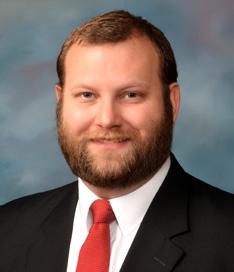
As the issues facing employers and HR professionals become more frequent, challenging, and complex each year, you need a law firm that provides advice for your specific organization.
For over 45 years, Rainey Kizer Reviere & Bell has advised businesses, non-profit organizations, and governmental agencies in all aspects of employment law.
To learn how we can assist your organization, please contact us at 731.423.2414.
TENNESSEE MEMPHIS • MARTIN • JACKSON • NASHVILLE • CHATTANOOGA KENTUCKY FULTON THE STRENGTH OF EXPERIENCE raineykizer.com Tennessee and Kentucky do not certify specialists in the area of employment law. Attorney Advertisement
31 www.HRProfessionalsMagazine.com
90% Pass Rate
Online HRCI PHR | SPHR Certification Prep Class
Online classes begin August 15, 2023 and will meet twice per week for 8 weeks on Monday and Wednesday evenings from 6:00 PM to 7:00 PM.
HRCP 2023 Study Materials included:
• Six Study Guides
• Online practice exams for each Study Guide
• 100s of Flashcards
• HRCP materials that are among the most effective study guides available and are easy to read and understand
The total cost of the HRCI PHR | SPHR Certification Prep Class is $900 plus shipping ($25.00).
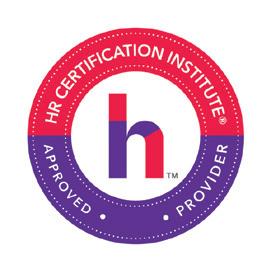
You may pay by PayPal, Credit Card, or Check.
Guarantee
If you fail the exam, you may retake the class as long as you
– Attend 80% of the scheduled online classes
– Score 80% on all HRCP practice quizzes during the program
Deadline to register is August 8, 2023
Contact cynthia@hrprosmagazine.com OR visit our website at www.hrprofessionalsmagazine.com
About the instructor:
Cynthia Y. Thompson is Principal and Founder of The Thompson HR Firm, a human resources consulting company in Memphis. She is a senior human resources executive with more than twenty years of human resources experience concentrated in publicly traded companies. She is the Editor | Publisher of HR Professionals Magazine, an HR publication distributed to HR professionals in Alabama, Arkansas, Florida, Georgia, Kentucky, Louisiana, Mississippi, North Carolina, Tennessee, and Texas.
Cynthia has an MBA and is certified as a Senior Professional in Human Resources (SPHR) by the Human Resource Certification Institute and is also certified as a Senior Certified Professional by the Society for Human Resource Management. She is a faculty member of Christian Brothers University. Cynthia was appointed to serve on the Tennessee DOHR Board of Appeals by Gov. Bill Haslam in 2014.
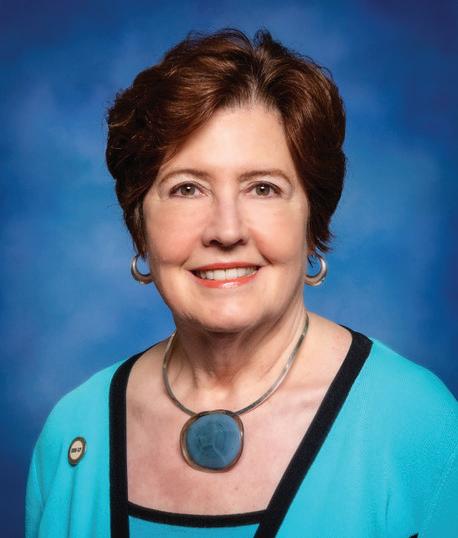
2023 2023
32 www.HRProfessionalsMagazine.com




NOW! Register presented by August 29-31, 2023 — Lexington — SCAN ME Visit our NEW! KYSHRMCONFERENCE.COM
Vending Machines Do Not Impact Employee Morale, Productivity and The Workplace Environment… Not So Fast My Friends!!!!!!!!!!!!!!!!!!!!!!!!!
By GARY JOYNER
That statement is about as far from being the truth as the earth is from the sun. Since vending machines cost your company nothing, your vending company typically installs their vending machines at no charge in exchange for being able to offer their cold and hot drinks, snacks, and food items to your employees when they go on break, visit the breakroom, employee lounge, or cafeteria.
The level of service your current vending provider offers to your employees in many cases can and does have a direct effect on how their attitude. Poor service can turn a positive attitude into one in which your employees become angry and upset if the vending machines take their money and they do not get the product they just paid for.
Our research and first-hand experience in working with literally hundreds of customers reveals that the overwhelming number of those clients have the HR Department handle refunds when their vending machines take employees’ money, and they must handle upset employees who feel they have been ripped off again and again.
Here are just four examples of how a vending machine has cost team members their job, and the company must go through the costly and time-consuming process of hiring someone to replace an employee who was terminated due to their behavior over the problem vending machines.
USA Today News/ the Des Moines Register Feb 20, 2014 - “Man fired after using forklift to free stuck candy bar-it’s a familiar tableau: A vending machine candy bar dangles on a spiral hook, tantalizingly out of reach and refusing to drop. For most of us, that mini drama usually ends in defeat. But not for Robert McKevitt of Spirit Lake whose victory over an uncooperative vending machine ultimately cost him his job.
McKevitt used an 8,000-pound forklift in attempt to retrieve a Twix candy bar from a vending machine- the Iowa National Guardsman was fired five days after the incident – a judge denied his unemployment benefits claim.
ABC7 Eyewitness News in Chicago on Oct 11, 2012 - Video shows a North Carolina woman setting a vending machine on fire- surveillance video shows Debra Johnson setting a soda machine on fire after it ate up her dollar. She is then seen lighting a newspaper on fire and shoving it into the machine. She is now facing two felony charges.
CBS2 Chicago on March 1, 2012 - Workers charged for shaking snacks out of vending machine- Some Southwest suburban workers who got the munchies are now in trouble with the law. A picture of the snack machine where the items were stolen has a post-it note on the front of the machine. It is not unusual for people to leave the vending company a note about losing their money in the machines. As WBBM News Radio Regine Schlesinger reports, the eight workers were on the night shift between 6 PM and midnight February 21 at an unspecified Bolingbrook business in the 800 block of Remington Boulevard.
Buzzfeed News.com June 21, 2017 - a bunch of CIA contractors got fired for stealing snacks from vending machines- the thefts took place in the Fall of 2012 and continued through March 2013 according to a declassified Office of Inspector General Report from October 2013.
Needless to say, the amount of money it cost these various companies to replace all these employees must be in the tens of thousands of dollars, and the HR department would not have to go through all of the hassle if their vending company had “state of the art” electronic merchandisers equipped with guaranteed product delivery systems.
These four examples most likely are just the tip of the iceberg to HR departments having to be the go-between when it comes to unhappy employees’ complaints with vending machine issues.
Have any of your staff and employees ever said, “Why doesn’t the vending company ask us what we want in our vending machines?” The typical answer most vending machine route personnel says, “We put in what our boss says to put in.” If this sounds like what you may have heard on more than one occasion from your present vending provider, maybe you should consider a vending company who periodically offers product survey forms that allow your team members to have a loud voice as to what they want to purchase.
There can be no doubt that a vending company can and does have a dramatic influence on the attitude of your employees and their job performance. Since vending service for your employees cost your company zero-nada-zilch-nothing, in most cases, it is almost never at the top of senior management’s “to do list.” However, it is very important to those employees who have been heard to say, “The company wants the best computers, software, work environment, health care, and other benefits that impact our well-being. But they really don’t seem to give a darn about the vending machines that we use daily.”
HR professionals are looking straight down the “barrel” of a golden opportunity to increase employee morale, productivity, and engagement when you choose Advantage Refreshments as your employee refreshment provider.
If your current vending company does not do things for your employees such as having “buy one get one free “ vending coupons, free $2-$5$10-$20-$50-and $100 bills give away in your vending machines, two for a dollar items ( even in today’s inflationary economy,) free scratchoff lottery tickets, and many other promotions designed to have a positive impact on your employees benefits, CALL GARY JOYNER ON HIS CELL PHONE AT 828-291-8323.

YOUR Employees WILL BE GLAD YOU DID!
34 www.HRProfessionalsMagazine.com
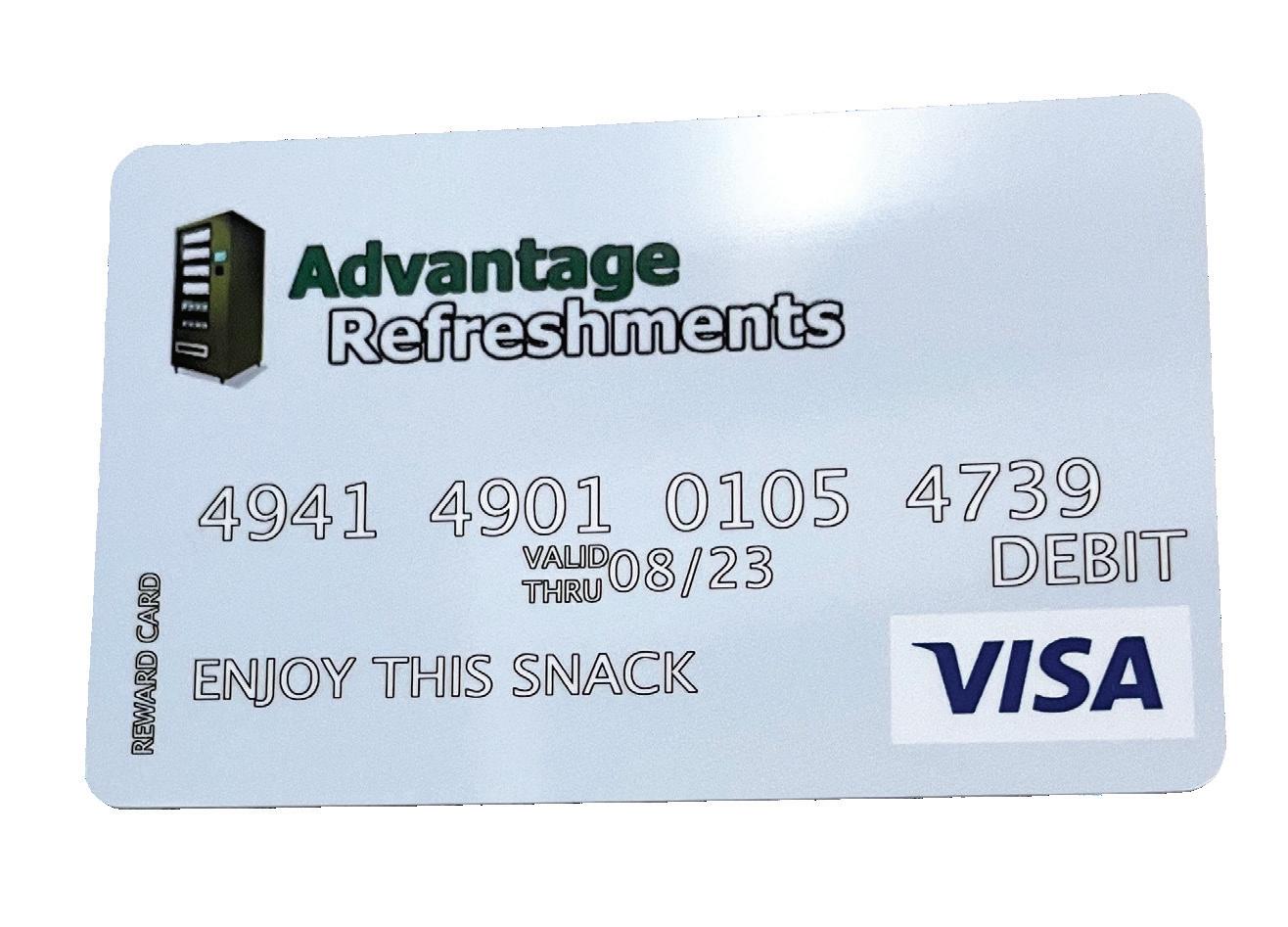


Call Gary Joyner at 828-291-8323 The HR department of every customer who is a SHRM member and HR Professionals Magazine subscriber will receive 500 $10 Advantage Refreshments Visa Gift Cards FREE that may be used to say thank you to an employee for a job well done, as part of a Welcome Aboard Package, or any way the HR Department chooses! Daytona has their 500… Indianapolis has their 500… Advantage Refreshments Has Our 500! 35 www.HRProfessionalsMagazine.com
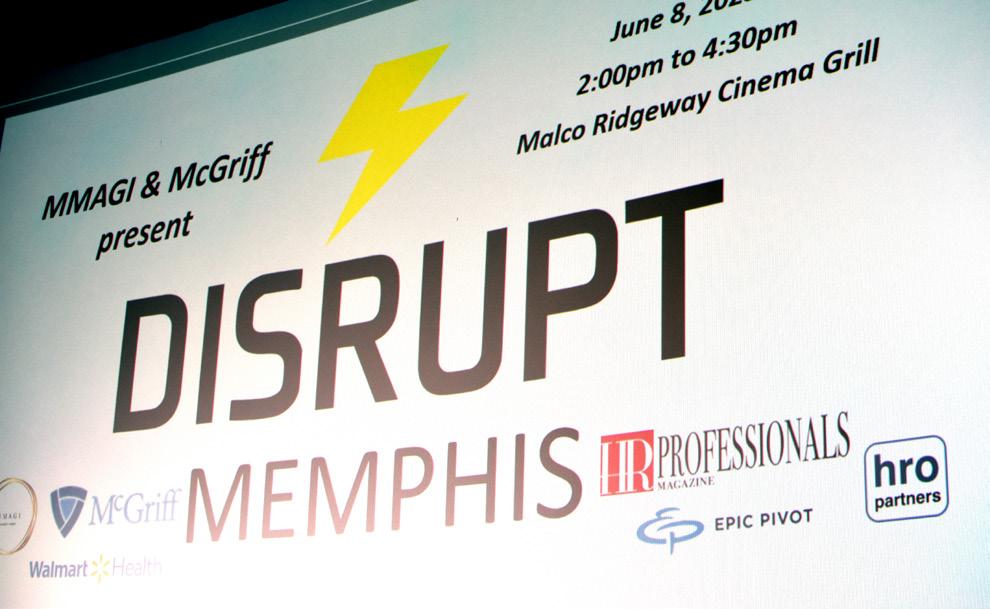

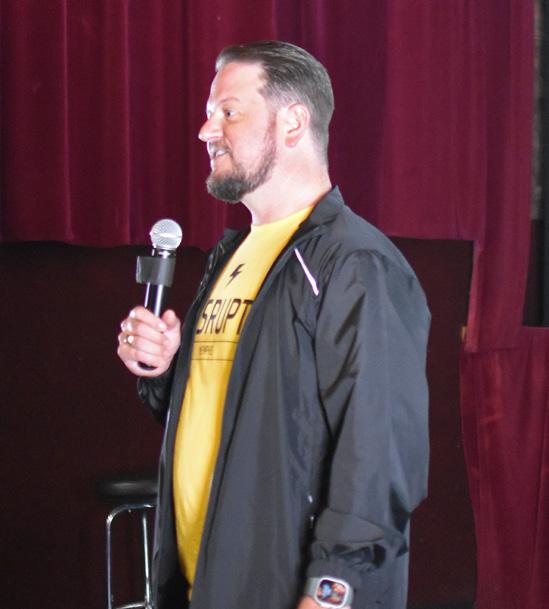
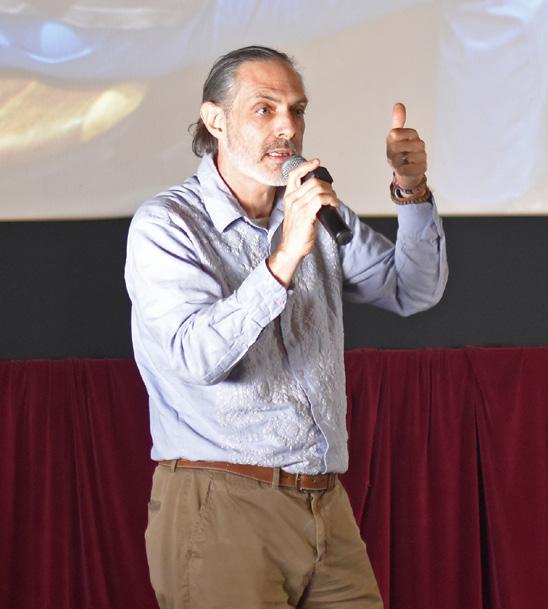




MMAGI & McGriff present Thursday, June 8, 2023 Disruption Matinee-Style – Don’t Miss It – Register Below! “Leadership in Jeopardy! From a Jeopardy! Champ” “One Workplace Myth that Needs to Die” “Ready, Set, GOLD by a 2x Olympic Gold & Silver Medalist” “Happy Pride Month: a brief history of the Alphabet Mafia” “Two Truths, A Lie, and Trust” The first 50 registrants who purchase a ticket and attend the event receive an autographed book, 10 Leadership Virtues for Disruptive Times by Tom Ziglar, proud son of Zig Ziglar! DisruptHR is a movement designed to energize, inform, and empower anyone who is passionate about people and the world of work (not just HR) Hear from a line up of 10 cutting edge speakers at a “not normal venue”, sharing their 5853 Ridgeway Ctr Pkwy, Memphis, TN 2:00pm to 4:30pm Malco Ridgeway Cinema Grill GET YOUR TICKET HERE HIGHLIGHTS 1
HR
Matinee
L-R Mark Holland,
McDaniel
1 2 3 4 5 6 7 36 www.HRProfessionalsMagazine.com
Disrupt
–
Style was held at the Malco Ridgeway Cinema Grill in Memphis 2 Tisch McDaniel, Organizer, led a prep session at the home of Austin Baker prior to the event. 3 The speakers for the event were
Tisch
(Organizer,) Jay Hoffman, Sarita Price, Michael Graber, Brad Federman, Finis Parkerson and daughter Candace, Verlinda Henning, Jimmy Madeksho, Angela Lamb, and Austin Baker (Emcee.) 4 Austin Baker, CEO and President of HRO-Partners, was the Emcee for the event. 5 Jimmy Madeksho with McGriff spoke on “The Executive Function.” 6 Michael Graber with Epic Pivot, spoke on “Making Business a Force of Good.” 7 Angela Lamb with Porter Leath’s topic was “Happy Pride Month: a brief history of the Alphabet Mafia in the Workplace.”
MMAGI & McGriff present Thursday,
June 8, 2023 Style
DisruptHR is a movement designed to energize, passionate about people an

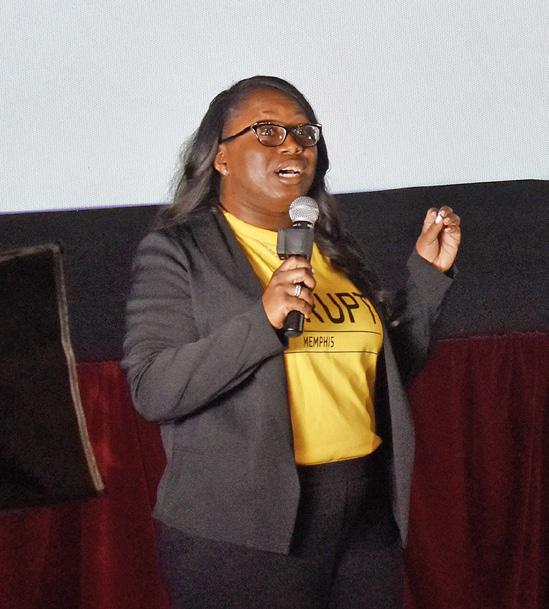



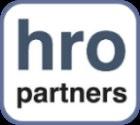
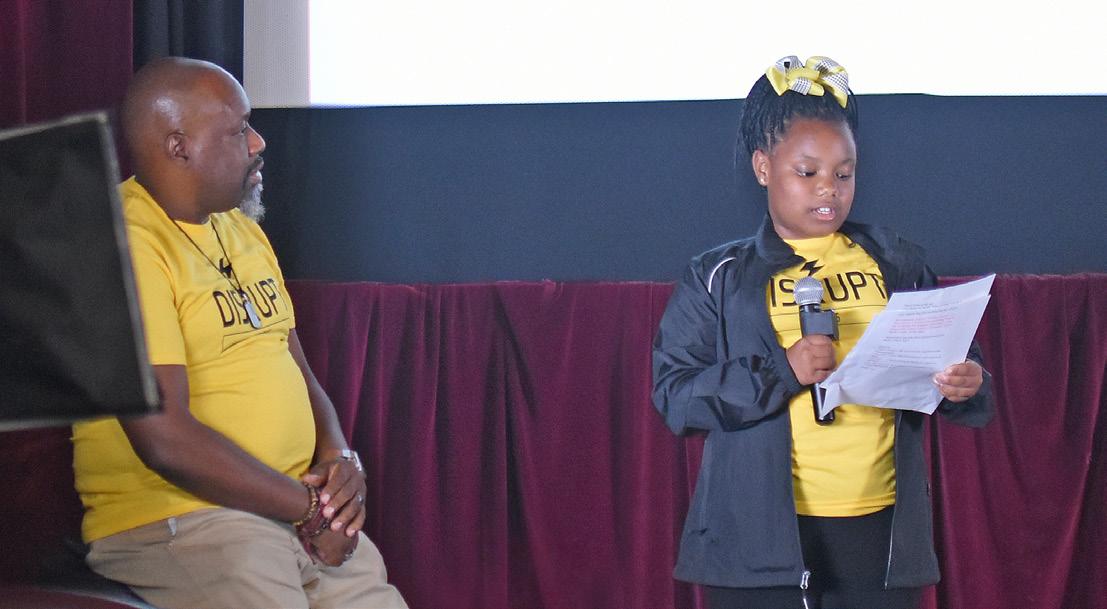

Hear from a line up of 10 cutting edge speakers, at a “not so normal venue”, sharing their unique perspectives - 5 minutes each, with 20 slides that auto-rotate every 15 seconds WOW! Get ready to be moved and learn something quick!

Sneak peek at some of the topics!
“The Executive Function”
“Hey! What About Me?”
“Leadership in Jeopardy! From a Jeopardy! Champ”
“One Workplace Myth that Needs to Die”

“Ready, Set, GOLD by a 2x Olympic Gold & Silver Medalist”

“Happy Pride Month: a brief history of the Alphabet Mafia”
“Two Truths, A Lie, and Trust”
The first 50 registrants who purchase a ticket and attend the event receive an autographed book, 10 Leadership Virtues for Disruptive Times by Tom Ziglar, proud son of Zig Ziglar!
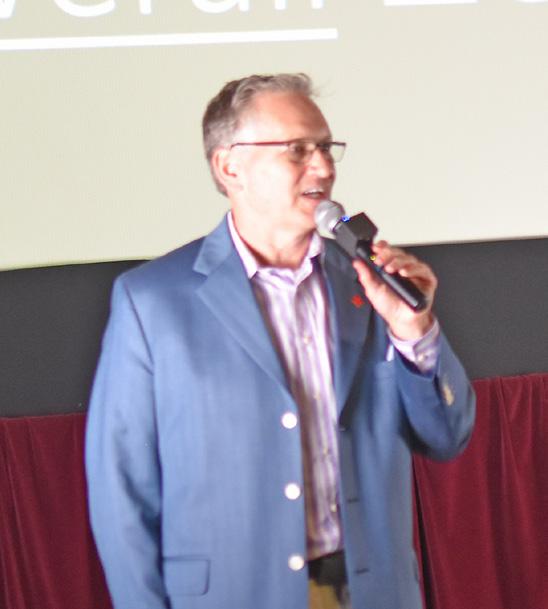
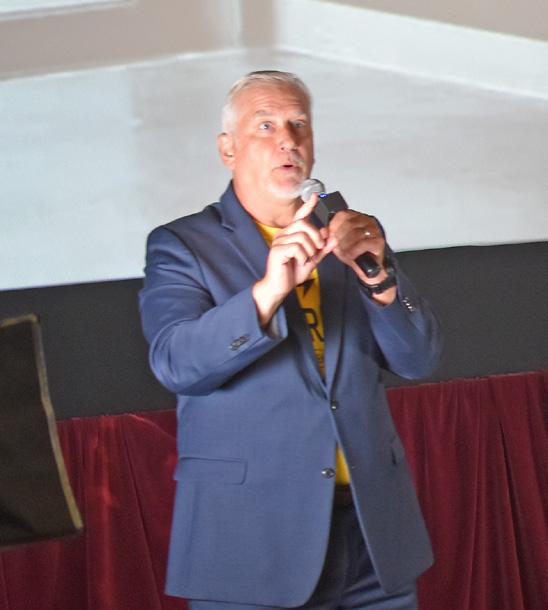
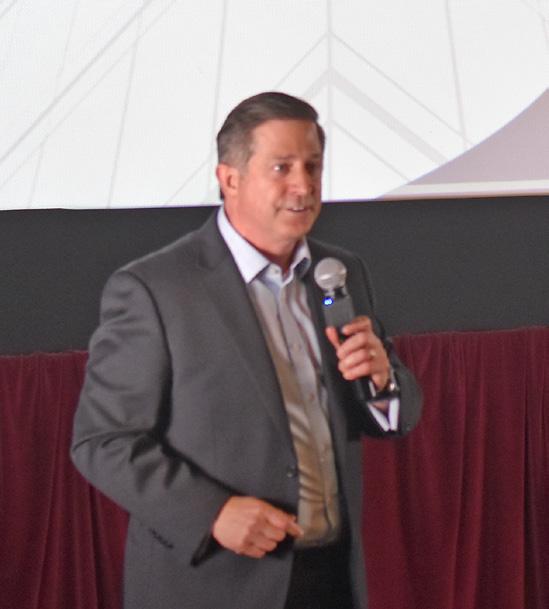
8 Tisch McDaniel, Organizer, with the speakers. 9 Nicole Jones with Webhelp’s presentation was “Lights, Camera, HR in Action!” 10 “Hey, What About Me?” was presented by Jay Hoffman, Walmart Health & Wellness. 11 Sarita Price with FSP Enterprises spoke on “Skilling You Softly™ : Soft Skills Get You Through Hard Times.” 12 Brad Federman, CEO of PerformancePoint, presented “One Workplace Myth That Needs to Die.” 13 Mark Holland with BenefitHelp spoke on “Cost vs Quality: A Big Lie?” 14 Verlinda Henning, CEO of FaithPeople Memphis, spoke on ”Leadership in Jeopardy? Leadership Lessons from a Jeopardy? Champ” 15 Some of the attendees at the event. 16 Finis Parkerson with daughter Candace. Candace’s topic was “How Kids Can Change the World.” Candace started the non-profit “Candace’s Heartbeat.”

GET YOUR TICKET HERE
HIGHLIGHTS
In case you missed it, you can view the vides on Facebook.com/HR Professionals Magazine. 8 9 10 11 12 13 14 15 16 37 www.HRProfessionalsMagazine.com


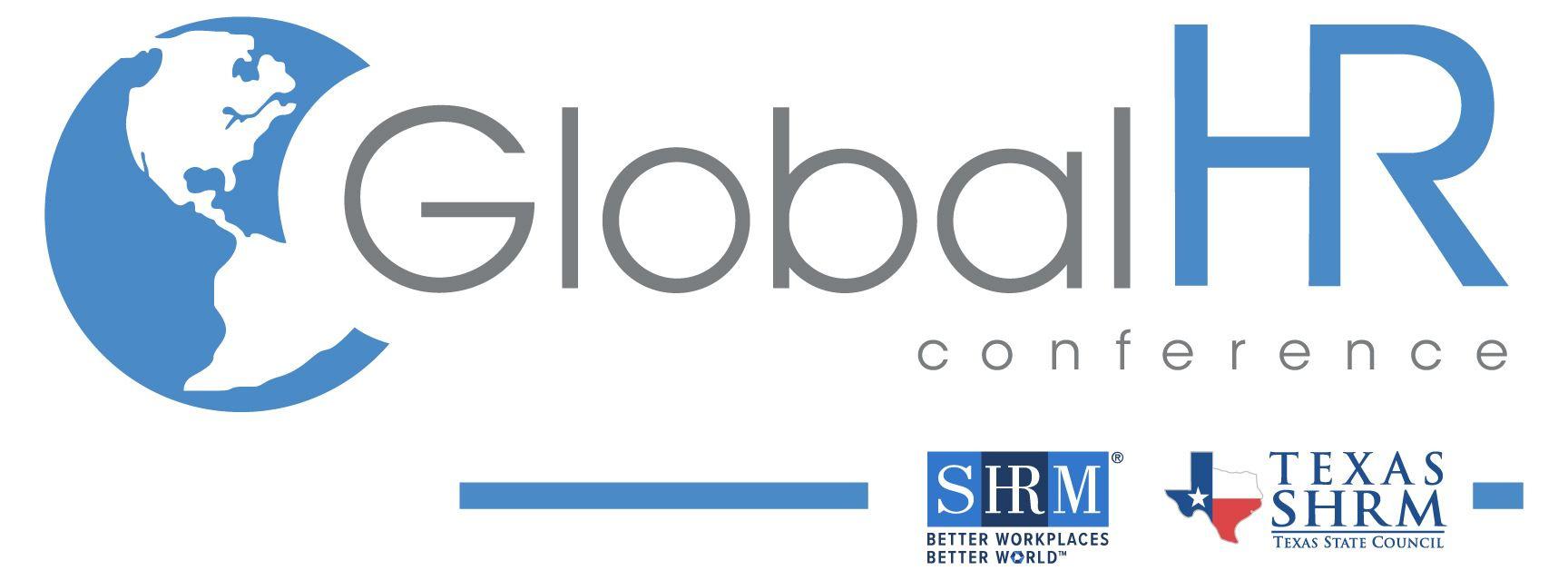
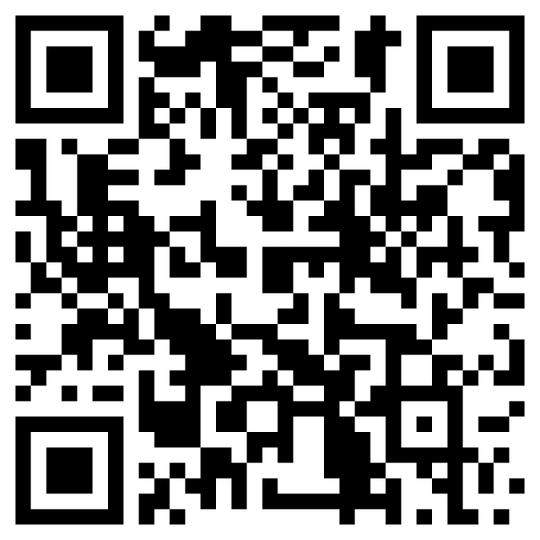
K e y n o t e S p e a k e r : Jon Petz 14 SEPT 2023 THURSDAY www.texasshrmglobalconference.org HOUSTON, TX Unique GPHR Credidation Exclusively for Global HR Single Day Conference Topics include immigration, international tax, and DE&I Scan QR code Why attend? Register Today! 38 www.HRProfessionalsMagazine.com
Jobless Claims Level Off in June 2023
States reported that 264,000 workers filed for new unemployment benefits during the week ending June 17, unchanged from last week’s revised level. This is the highest level for initial claims since October 2021 and the third straight week of elevated claims.
About 1.75 million workers continue to claim unemployment benefits. Economists point out that unemployment remains low by historic standards, though the unemployment rate rose to 3.7 percent in May.
Layoffs were expected to spike this year as the effects of interest rate hikes spread through the economy, but that has not happened yet to any significant degree. Some still expect a mild recession by the second half of the year or in early 2024, while others point to the labor market’s remarkable resilience throughout the lengthy interest rate hike campaign designed to slow it down.
Recognized by the Society for Human Resource Management (SHRM), Columbia Southern University’s degree programs in HR management prepare graduates to become influential business leaders. With coursework that aligns with SHRM’s HR Curriculum Guidebook and Templates, graduates are equipped to explore management-level careers including HR managers, training and development specialists, compensation and benefits managers and more.

Orange Beach, Ala. | Gainful employment information available at ColumbiaSouthern.edu/Disclosure.
ColumbiaSouthern.edu/HR »
Difference Online
Your HR Degree Completely Online
Experience the
Earn
39 www.HRProfessionalsMagazine.com


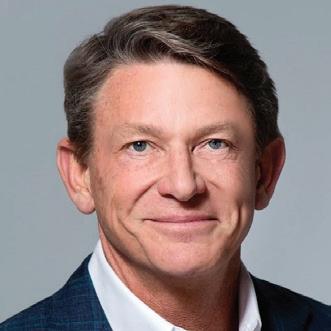

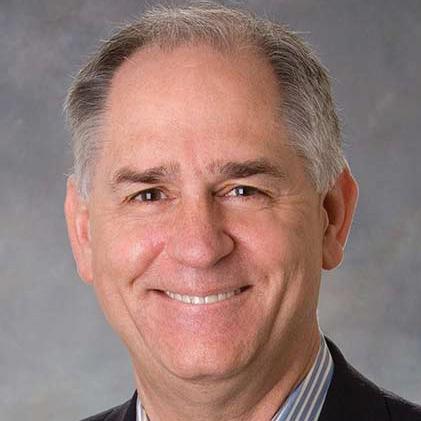
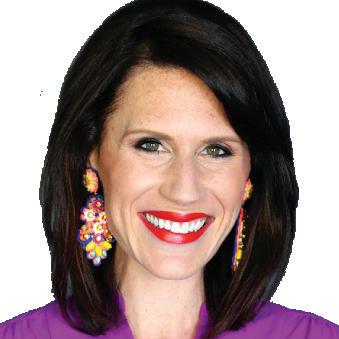

your personal and professional leadership development through a wide variety of learning opportunities designed to help you effectively navigate the ever-changing world of HR. Make your investment of time in attending the conference count even more by earning continuing education credits.
be encouraged and equipped to lead more effectively in your organization.
20-22, 2023
Presenters
Cultivate
Come
September
Keynote
DEREK YOUNG
Speaker DICK FINNEGAN Author and Speaker JESSICA STOLLINGS-HOLDER Author and Speaker Join us in Chattanooga Register by August 31and save $100* M MORE INFORMATION www.tnshrm.org *Compared to late registration rate *Rooms outside the block may be availble at www.marriott.com
RANDY BOYD President University of Tennessee
Author and
Volunteer Chapter of SHRM
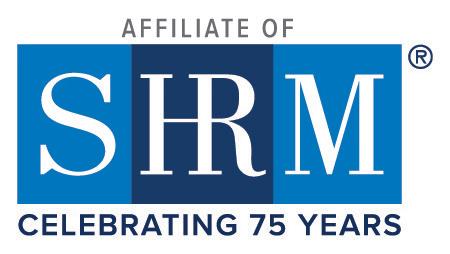

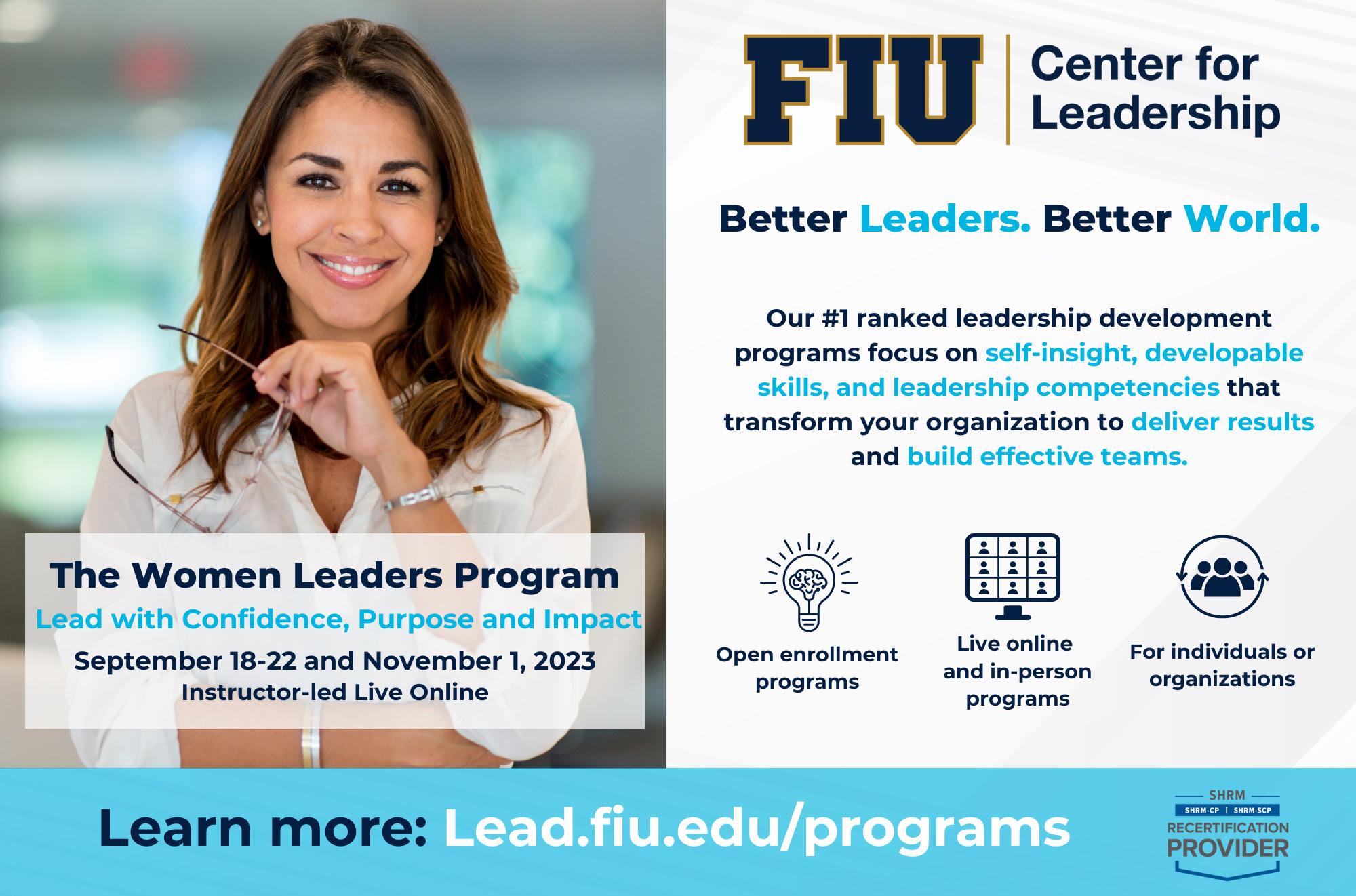
Members of the Volunteer SHRM Chapter in Dyersburg, TN, at their monthly meeting June 20. The speaker was Cynthia Thompson, Editor | Publisher of HR Professionals Magazine. Her topic was ”HR Competencies: Relationship Management.”

41 www.HRProfessionalsMagazine.com








CONFERENCE AND EXPO JOIN US FOR TWO DAYS OF LEARNING AND CONNECTING WHILE ENJOYING THE AMENITIES OF OUR TOP NOTCH VENUE! REGISTER NOW AND BOOK YOUR STAY! O c t o b e r 1 1 t h - 1 3 t h , 2 0 2 3 Margaritaville Classic 18 hole Golf Course Onsite Tranquility Spa L a k e L a n i e r L e g a c y L o d g e a n d C o n f e r e n c e C e n t e r , L a n i e r I s l a n d s , B u f o r d G A Scenic Hiking Trails Numerous Restaurants s h r m g e o r g i a . o r g "ALL ABOUT TALENT"
ONE SHRM GEORGIA 2023 STATE
2022 SHRM Excel Awards in the Southeast
SHRM encourages each of its chapters and state councils to establish goals and strategic initiatives in support of the HR profession. These goals and initiatives allow our affiliates to increase their visibility and effectiveness as well as expand impact within the HR community. These goals and initiatives can also be the basis for SHRM’s Excel Awards.

PLATINUM EXCEL AWARD
AR - Arkansas SHRM State Council, Inc.
FL - HR Florida State Council, Inc.
GA - Georgia SHRM State Council
KY - Kentucky SHRM State Council
LA - Louisiana SHRM State Council
MS - Mississippi State Council of SHRM
NC - North Carolina SHRM State Council
TX - Texas SHRM State Council
PLATINUM CHAPTER EXCEL AWARD
AR Central Arkansas HR Association
FL North Central Florida SHRM
FL SHRM SWFL
FL South Brevard SHRM
FL Greater Orlando SHRM
FL Volusia/Flagler SHRM
FL Florida Keys SHRM
FL Space Coast HR
FL HR Tampa
FL Greater Pensacola Chapter of SHRM
GA Savannah Area SHRM
GA Central Savannah River Area SHRM
GA Greater Henry County Chapter of SHRM
NC HR Management Association of Greensbora
NC Raleigh Metro SHRM
NC Central Carolina SHRM
NC Western North Carolina SHRM Association
NC The Alamance County HR Association
NC Lake Norman HR, Inc.

NC Triangle SHRM
SC Columbia SHRM
SC Spartanburg HR Association
SC Palmetto SHRM
TN SHRM-Memphis
TN SHRM Chattanooga
TN West Tennessee SHRM
TX San Antonia HR Mgmt. Association
TX North Texas SHRM
GOLD CHAPTER EXCEL AWARD
FL Suncoast HR Management Association
NC Fayetteville Area SHRM
NC Winston-Salem SHRM
TX Lower Valley Chapter SHRM
TX EL Paso Society HRM
SILVER CHAPTER EXCEL AWARD
FL SHRM Emerald Coast
GA SHRM – Columbus Area
GA SHRM – Atlanta
NC Lower Cape Fear HRA
NC Iredell Human Resource Association
TX Mid-Cities HR Association
43 www.HRProfessionalsMagazine.com
Fill in gaps preventing your advancement with our in-person and virtual Education Programs

Choose the topic that will help you and your company most, such as:
• Talent Acquisition – Build your talent acquisition strategy to attract top talent.
• Compensation & Benefits – Increase employee retention, productivity, and happiness.
• Diversity, Equity, and Inclusion – Create a stronger workplace culture by fostering a sense of belonging.
• Leading Workplace Investigations – Communicate a best-practice process framework for conducting internal investigations... and many others!
SHRM Members can save up to $270 with their SHRM member discount!
shrm.org/june-seminars
Gain critical skills and design your career path.
REGISTER TODAY
230050
Book early to get your first choice of dates. Sessions fill up quickly
How Emotional Intelligence Can Help Prevent a Toxic Workplace
By HARVEY DEUTSCHENDORF

According to a research study conducted by the MIT School of Management, around 30 million US workers experience their workplace as toxic. The research found that there were three basic factors that lead to toxic workplaces, bad leadership, social norms, and poorly designed job roles. The results were obtained from viewing over four million employee reviews at Glassdoor. Bad leadership spreads down and the attitudes of leaders will permeate the organization. At the worst, leaders can create toxicity by exhibiting disrespect, backstabbing, favoritism, and pitting employees against one another. Even if they don’t exhibit it themselves, they notice it and do nothing about it, they are giving tacit approval. Toxic social norms can become normalized among employees, or a segment of them. Even if the original leaders leave, toxicity can become ingrained and stay. Poorly designed jobs lead to overwork and confusion. Feeling powerless over managing their work and micromanaging are major factors that lead to stress and toxicity.

Here are some ways that can help prevent toxicity from becoming ingrained in the workplace.
Healthy workplaces don’t just come about by themselves. Leaders must take a proactive role in building them. First, by demonstrating meritocracy and looking more closely at what everyone contributes. To do this, they will need to overcome an inclination to favor and promote those that they like and those that are good at ingratiating themselves to their leaders. While it takes extra time and effort, recognition must be individualized, as one size does not fit all. “More than two-thirds of managers are overwhelmed, so building a connection with each employee often gets deprioritized,” said Jaclyn Margolis, Associate Professor at Pepperdine Graziadio Business School, “However, having a strong connection with your manager is the foundation for nearly everything in the workplace, from employee productivity to job satisfaction.”
Hard working, talented employees will be turned off if they see those who give much less receiving as much recognition and being rewarded the same as they are. Recognition needs to be given not only for achievement but for those who are supportive of their fellow employees. Tillis Lederman adds, “Often leaders need to seek out opportunities to appreciate efforts, especially with those that are focused on details rather than the decision makers and problem solvers.” Employees can be encouraged to recognize and give shout outs to others who have gone out of their way to support and encourage their colleagues. Leaders can actively let it be known that this will be one of the major considerations when deliberating for promotions within the organization. Leaders must become habitual about looking for and recognizing when someone is doing something right and well.
Everyone wants appreciation and recognition. Studies have shown that people who feel appreciated will put in more discretionary effort. When someone makes an error, instead of telling them what they should have done, tell them how they could do it better next time. This changes the interaction from criticism or shaming, into a learning opportunity. According to research, highperformance teams get five times more positive feedback than negative. While all leaders need to correct errors and negative behavior, emotionally intelligent ones recognize the importance of being constantly on the outlook for and catching people doing something right.
While it is important that work gets done and in the right way, it is important to get employee’s input into their roles as much as possible. The more say employees have over their work, the more buy in and ownership they have over their roles. Leaders who spend time working with their staff will learn a great deal about their jobs. In my book, The Other Kind of Smart, www. theotherkindofsmart.com I talk about the importance of leaders experiencing as much as possible the work that their employees do. This will lead to closer engagement and recognition that the individual doing the job is one of the best resources for information on how to do it better.
Harvey Deutschendorf is an emotional intelligence expert, internationally published author and speaker. To take the EI Quiz go to theotherkindofsmart.com. His book THE OTHER KIND OF SMART, Simple Ways to Boost Your Emotional Intelligence for Greater Personal Effectiveness and Success has been published in 4 languages. Harvey writes for FAST COMPANY and has a monthly column with HRPROFESSIONALS MAGAZINE. You can follow him on Twitter @theeiguy.

45 www.HRProfessionalsMagazine.com
GET THE TOOLS YOU NEED TODAY TO BUILD BETTER WORKPLACES TOMORROW


The world is changing, and businesses need to keep up. We’re excited to announce SHRM INCLUSION 2023—a conference designed to equip you with the tools and strategies needed to create a more equitable workplace.
LAST CHANCE TO SAVE!
Register by July 14 to secure the best rate.
Hear from leading experts in DE&I






















Learn from curated content that addresses the DE&I issues you’re most likely to face in your current role


Join in on interactive workshops








Network with like-minded professionals who share your vision for a more inclusive future inclusive and







Build a more positive, innovative culture in your workplace.





SHRM INCLUSION 2023!
CPR-230194









V isit shrm.org/inc23-july to learn more.
Sneak Peek Sneak Peek Western Governors University’s Brand-New Master of Science in Human Resource Management Degree launching November 1
By ASHLEY DUGGER
We’ve all heard of the importance of continuously upskilling and reskilling as HR professionals in a constantly changing and ever more demanding industry. Did you know that HR professionals are a highly educated group, with around 40 percent holding a postgraduate degree? Many HR professionals invest time, energy, and financial resources into continuing education such as certifications like the SHRM-CP and SCP, HRCI PHR and SPHR, SHRM specialty credentials, and function-specific certification in areas like total rewards, learning and development, analytics, and payroll. They are also seeing the compelling return on investment in continuous learning by going back to school.
As laws, technology, best practices in recruiting and retention, approaches to supporting growth and development in remote/global/ hybrid workforces, and employee-experience expectations all constantly shift, one of the best ways to refresh or expand your HR skillsets and increase your earning potential and career advancement can be via earning a master’s degree.
Recent reports note that for the field of HR, “some of the highestpaying jobs pay well over $120,000 per year, which significantly exceeds the median household income of $67,520” in the United States. For executive-level roles such as a Chief Human Resources Officer, where a master’s degree and additional certifications or credentials can help you stand out in a competitive job search, salaries average upwards of $153,000 annually, according to Payscale. BambooHR released a 2023 “The State of Human Resources Leadership Report” that found in managerial and senior leadership roles in HR, the percentage of those with a master’s degree or higher rose to 57 percent!
Strong industry growth, high earning potential, and the consistent need for HR in all industries and organization types is what led Western Governors University to build a brand-new Master of Science, Human Resource Management degree designed to align with SHRM curriculum standards. We consistently hear from HR professionals, current students, and alumni that they would like to continue their education journey in the field of HR and advance their skills, demonstrate their commitment to learning to their employers, and qualify for advanced positions that come with earning a master’s degree.
“At Western Governors University, we understand the importance of continuous learning and upskilling in rapidly evolving fields like HR,” says Dr. Victor Aluise, Vice President and Dean of WGU’s College of Business. “With a high percentage of HR professionals already holding a postgraduate degree, it is clear that investing in further education is highly valued by employers. Our new Master of Science in Human Resource Management degree provides HR professionals with the opportunity to refresh and expand their skillsets, increase their earning potential, and stand out in a competitive job market. Our unique competency-based learning model enables busy professionals to learn on their own time with great efficiency.”

Our new MSHRM degree will launch on November 1, 2023, and is composed of ten courses covering in-demand skills employers are looking for in strategic HR management, business acumen, and leadership, with themes of DEI, global best practices, and strategic HR threaded throughout the program. Courses include:
• Managing Organizations and Leading People
• Business Acumen
• Managing Human Capital
• Management Communications
• HR Compliance and Employee Relations



• Data-Driven Decision Making

• Talent Acquisition and Development


• Future-Focused Total Rewards
• HR Technology and People Analytics
• Inclusive Workplace Culture Capstone
Along the way to degree completion, you will have the opportunity to earn two additional credentials to boost your resume at no additional cost from tuition and fees, including a WGU certificate in HR Technology and Analytics for Decision Making, and the SHRM Inclusive Workplace Culture Specialty Credential.
Liz Lacey, Director, Educational Programs at SHRM, noted, “SHRM is proud to partner with WGU to launch its new Master of Science, Human Resource Management degree with the SHRM Inclusive Workplace Culture Specialty Credential anchoring the capstone course. This degree will prepare current and future professionals and students with the progressive, strategic HR skills needed to increase earning and career potential while positively influencing workplaces and communities rooted in inclusivity and belonging.”
Western Governors University is a regionally accredited, competencybased, nonprofit online university dedicated to changing lives for the better through creation of pathways to success. There’s never been a more critical time for HR professionals to shape the world around them through influencing their workplaces for positive change! If you are interested in the new MSHRM degree launching November 1, you can sign up to be contacted with more information and to enroll as soon as August 1 by visiting wgu.edu/mshrm
Ashley Dugger, DBA, SHRM-CP Associate Dean and Director-HR Management and Organizational Psychology Programs Western Governors University ashley.dugger@wgu.edu www.wgu.edu

47 www.HRProfessionalsMagazine.com
Coming Soon: WGU’s Master of Science in Human


Learn more. wgu.edu/mshrm 866.225.5948 MASTERING A CAREER IN HUMAN RESOURCES
There’s never been a more critical time for inclusive and strategic HR practices to support business success and employee experience. That’s why WGU is excited to announce its Master of Science in Human Resource Management (MSHRM) is designed to align with SHRM and HRCI curriculum standards and guidelines. Enrolling August 1, 2023. Scan for more information about the MSHRM and to join our waitlist. Rebecca O. B.S. Human Resource Management, 2022
Resource Management








 Cynthia Y. Thompson, MBA, SHRM-SCP, SPHR
Cynthia Y. Thompson, MBA, SHRM-SCP, SPHR










































 By HOWARD JACKSON
By HOWARD JACKSON




































 By AMY SCHABACKER DUFRANE
By AMY SCHABACKER DUFRANE


















































































































